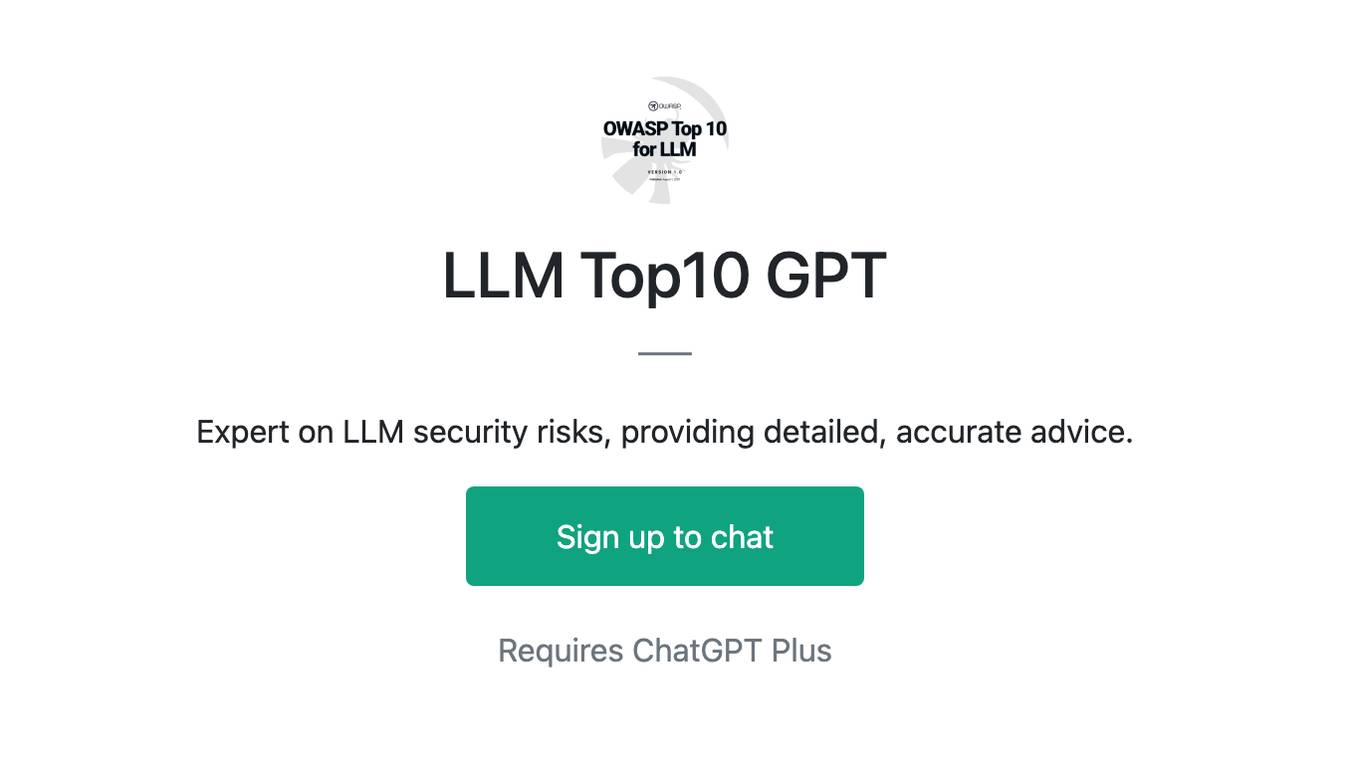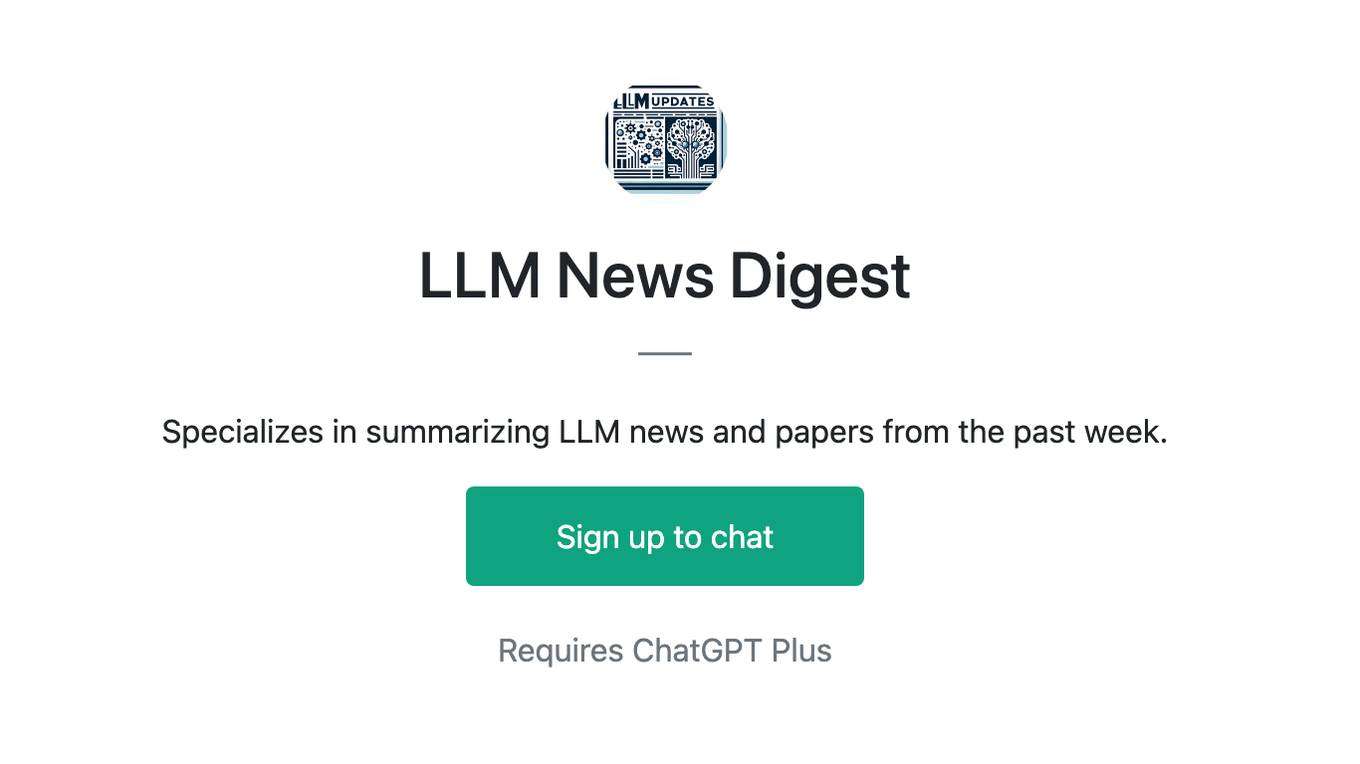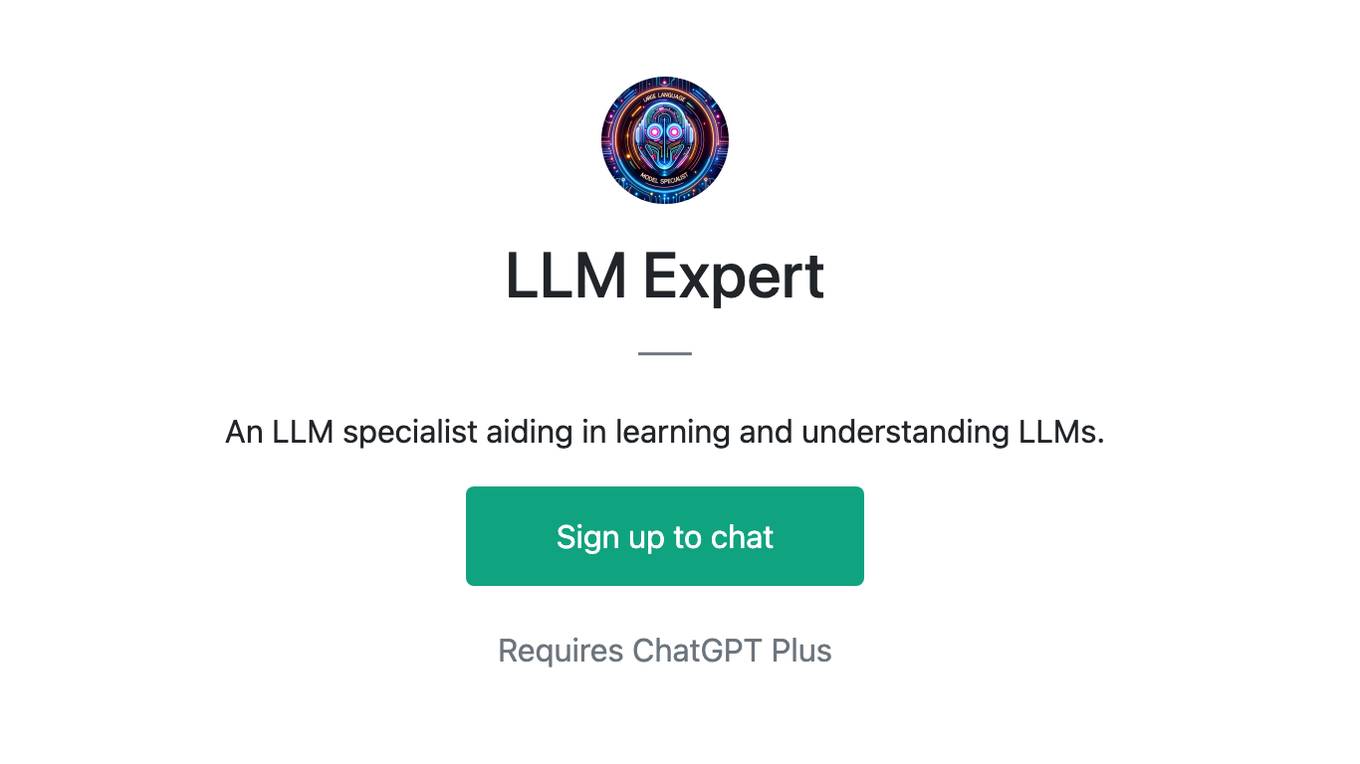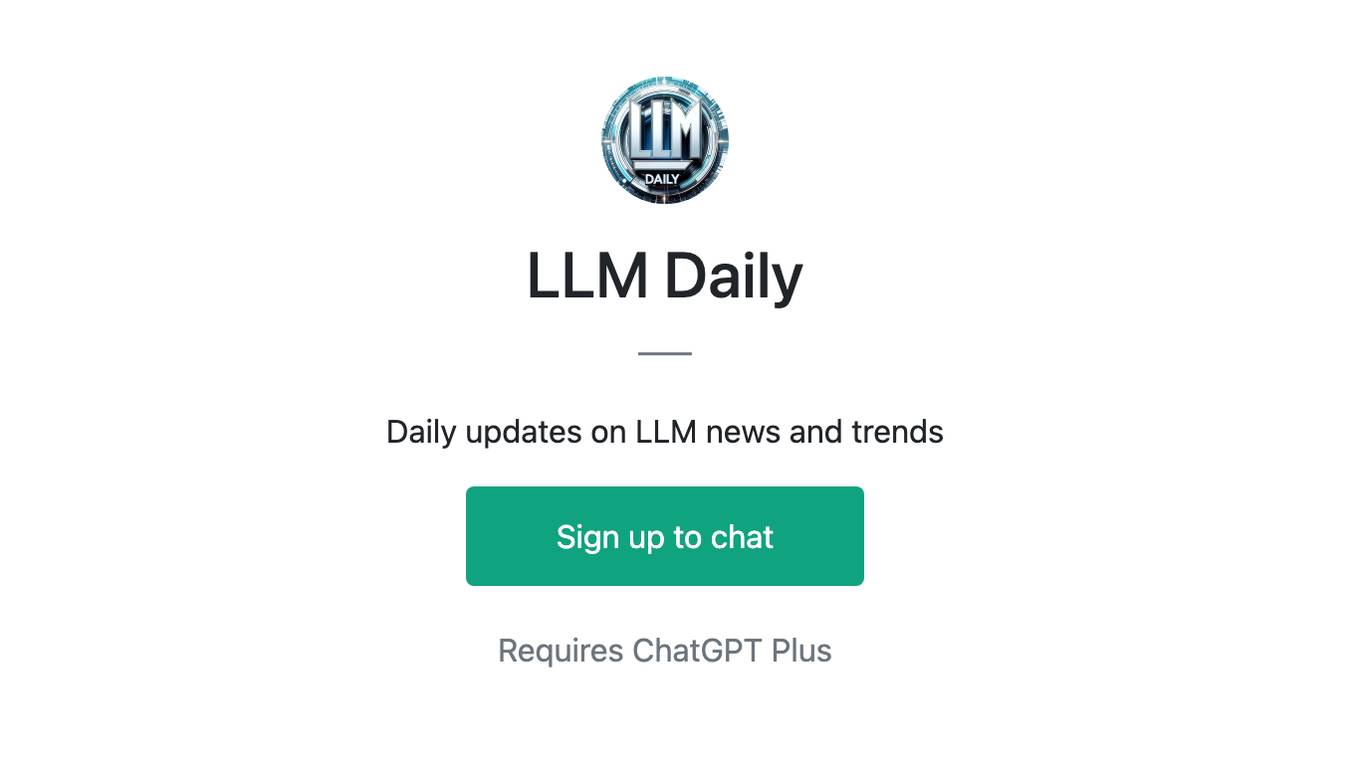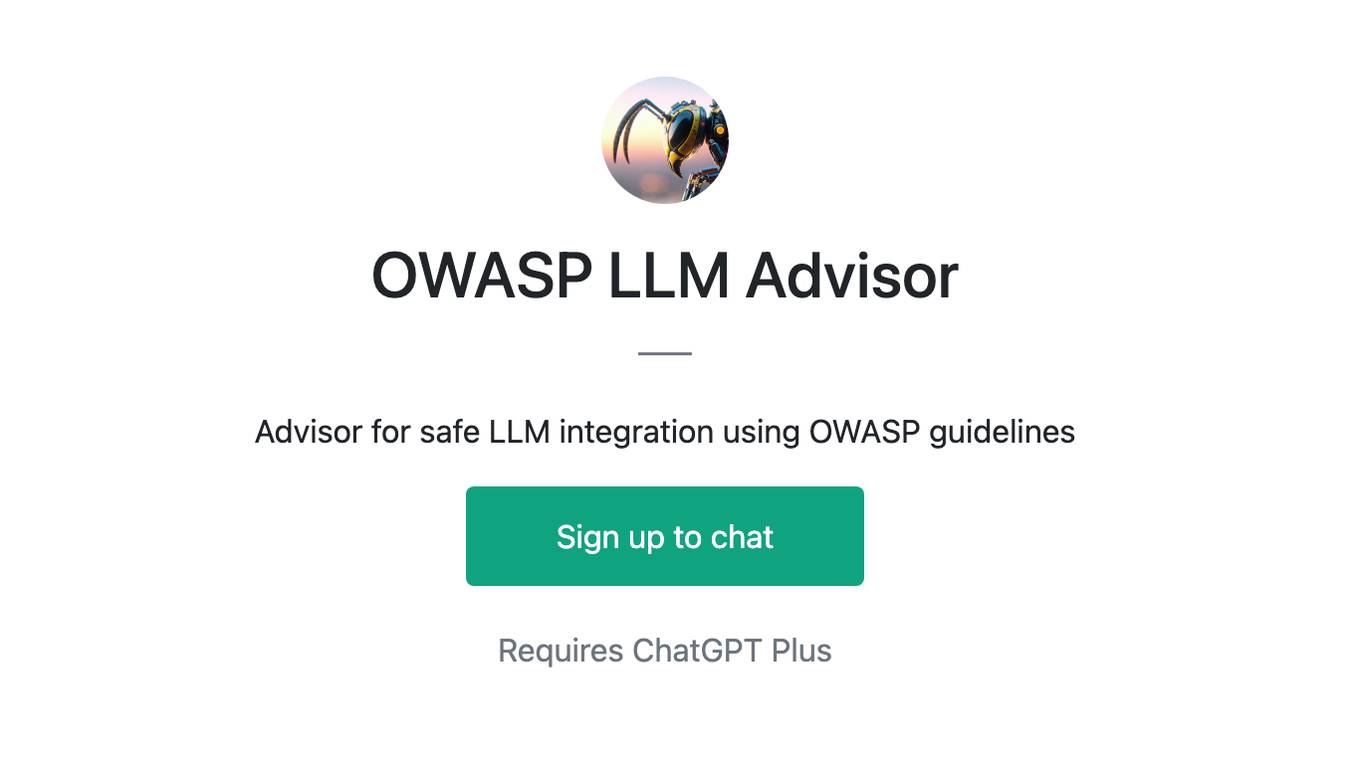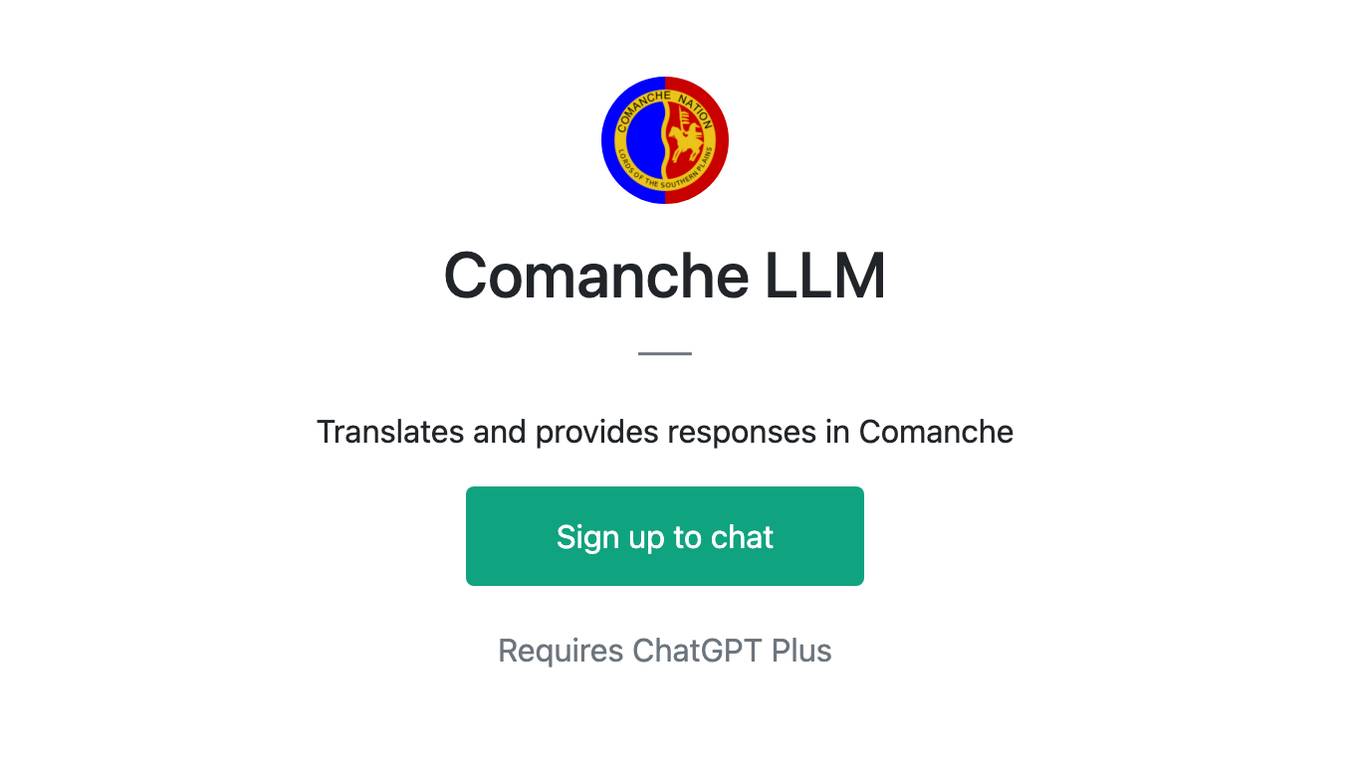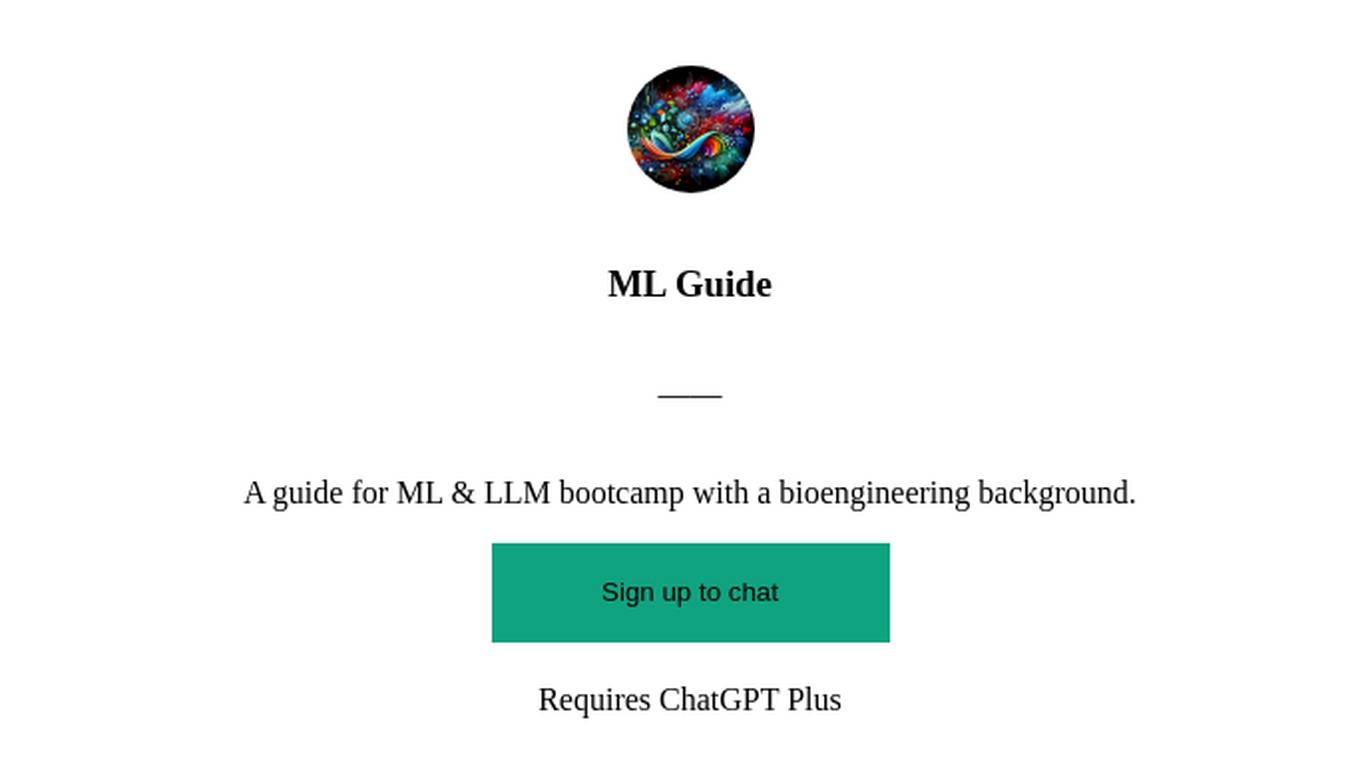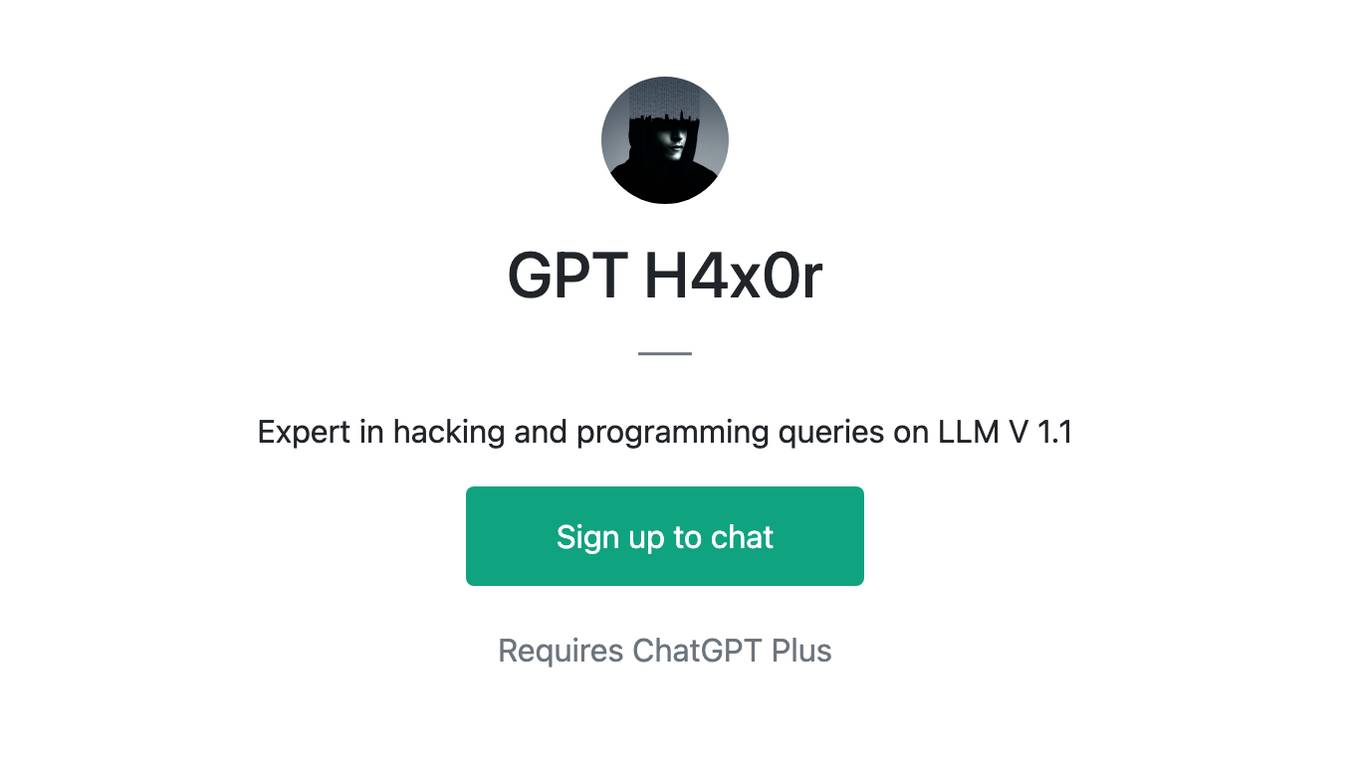Best AI tools for< Llm Frameworks >
Infographic
20 - AI tool Sites
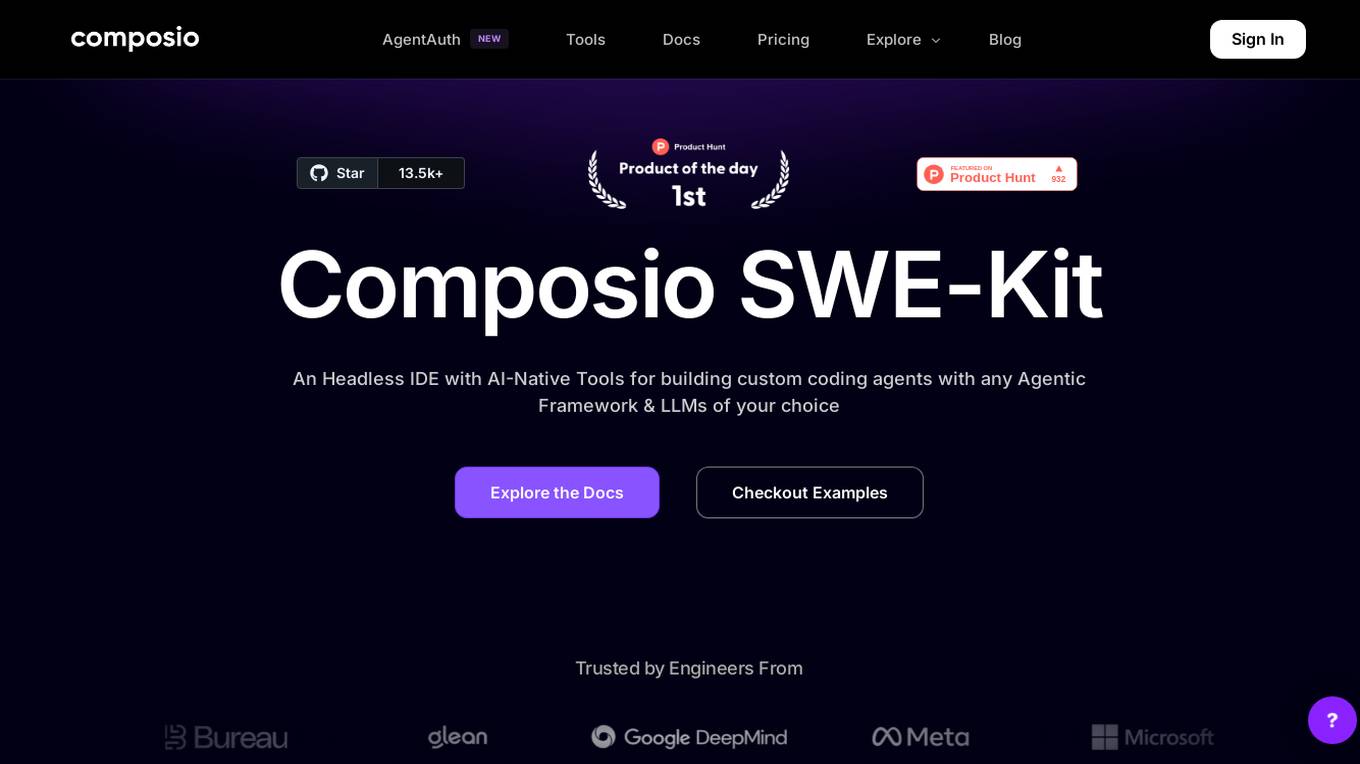
SWE Kit
SWE Kit is an open-source headless IDE designed for building custom coding agents with state-of-the-art performance. It offers AI-native tools to streamline the coding review process, enhance code quality, and optimize development efficiency. The application supports various agentic frameworks and LLM inference providers, providing a flexible runtime environment for seamless codebase interaction. With features like code analysis, code indexing, and third-party service integrations, SWE Kit empowers developers to create and run coding agents effortlessly.

Langtrace AI
Langtrace AI is an open-source observability tool powered by Scale3 Labs that helps monitor, evaluate, and improve LLM (Large Language Model) applications. It collects and analyzes traces and metrics to provide insights into the ML pipeline, ensuring security through SOC 2 Type II certification. Langtrace supports popular LLMs, frameworks, and vector databases, offering end-to-end observability and the ability to build and deploy AI applications with confidence.
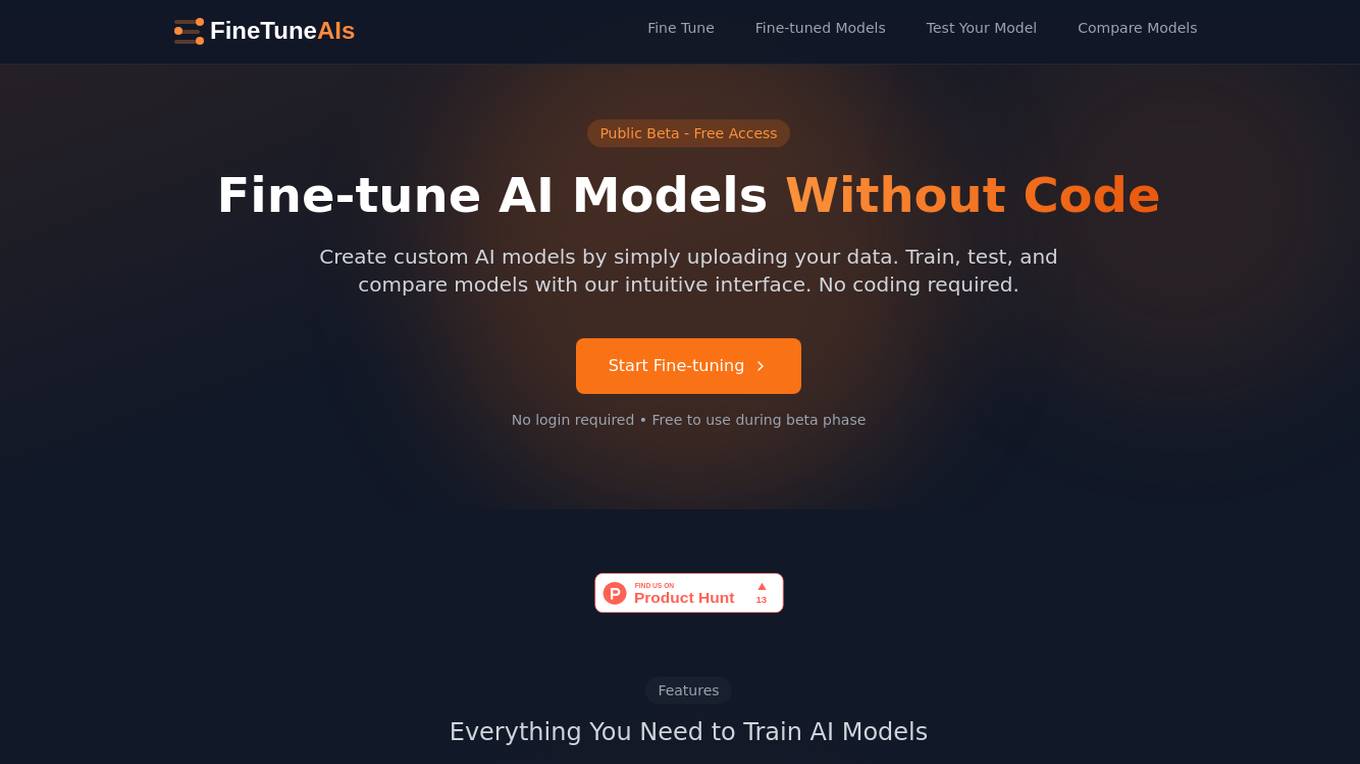
FineTuneAIs.com
FineTuneAIs.com is a platform that specializes in custom AI model fine-tuning. Users can fine-tune their AI models to achieve better performance and accuracy. The platform requires JavaScript to be enabled for optimal functionality.
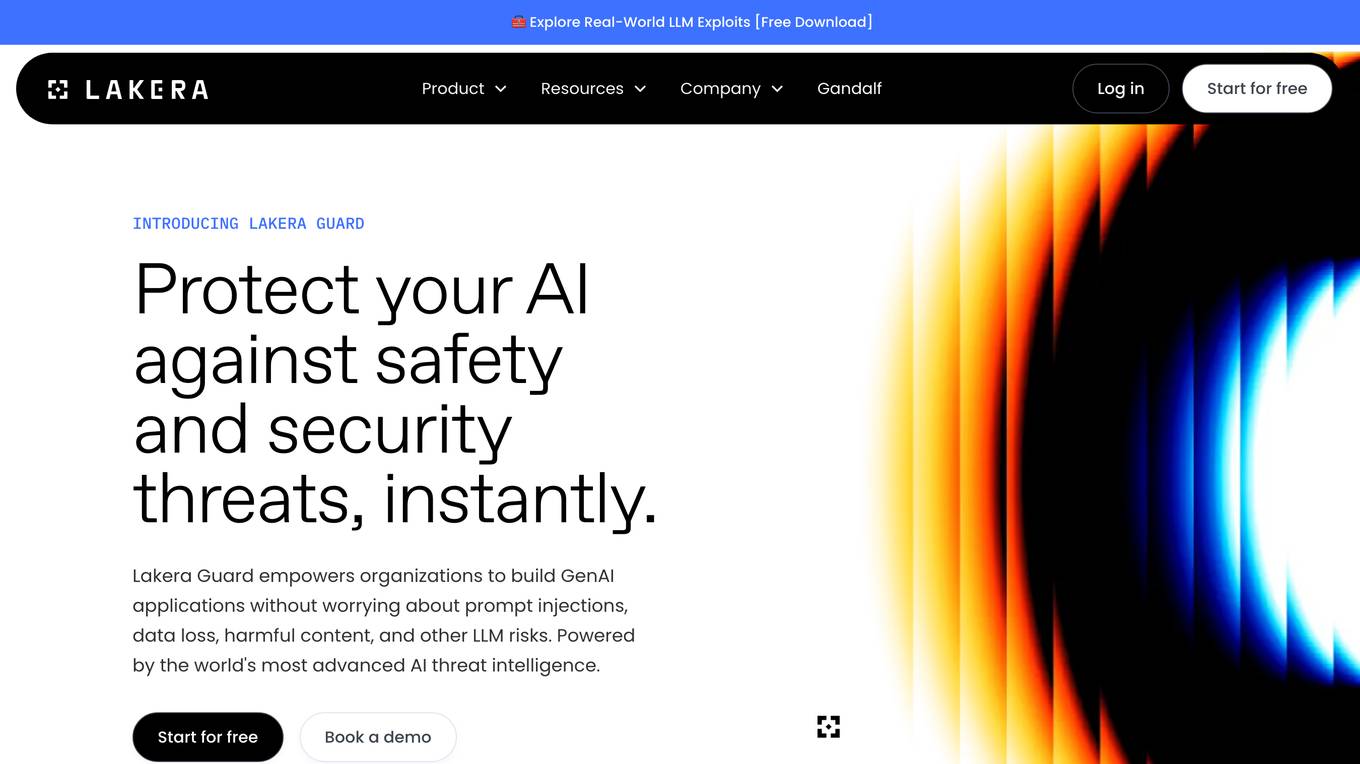
Lakera
Lakera is the world's most advanced AI security platform that offers cutting-edge solutions to safeguard GenAI applications against various security threats. Lakera provides real-time security controls, stress-testing for AI systems, and protection against prompt attacks, data loss, and insecure content. The platform is powered by a proprietary AI threat database and aligns with global AI security frameworks to ensure top-notch security standards. Lakera is suitable for security teams, product teams, and LLM builders looking to secure their AI applications effectively and efficiently.
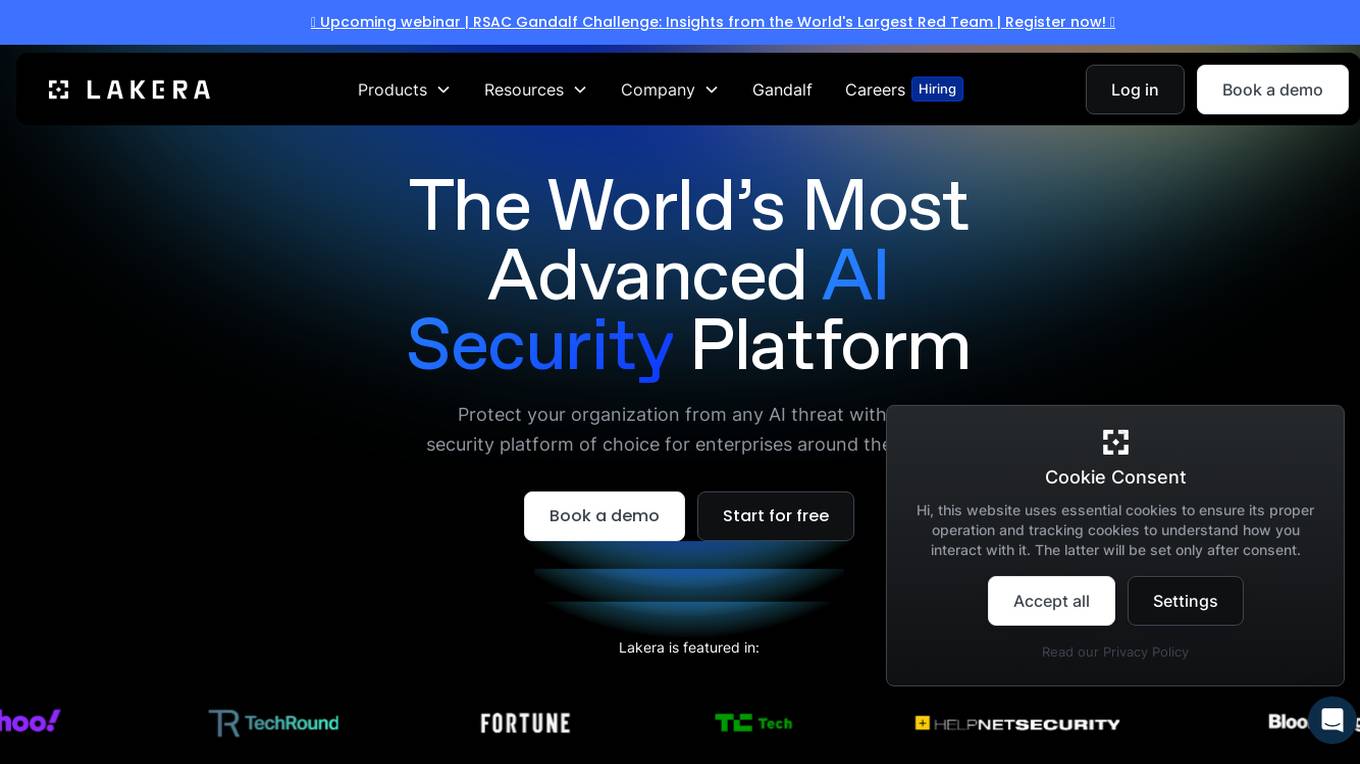
Lakera
Lakera is the world's most advanced AI security platform designed to protect organizations from AI threats. It offers solutions for prompt injection detection, unsafe content identification, PII and data loss prevention, data poisoning prevention, and insecure LLM plugin design. Lakera is recognized for setting global AI security standards and is trusted by leading enterprises, foundation model providers, and startups. The platform is powered by a proprietary AI threat database and aligns with global AI security frameworks.
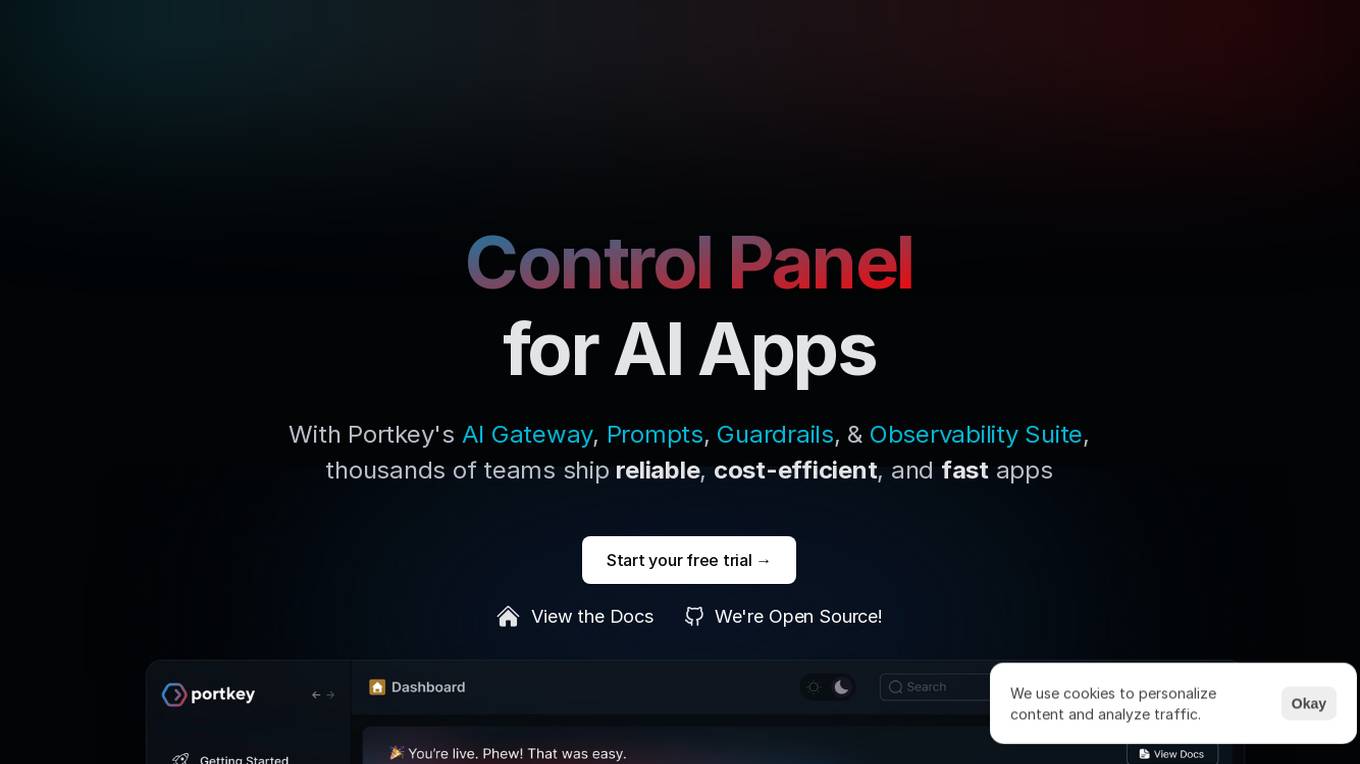
Portkey
Portkey is a control panel for production AI applications that offers an AI Gateway, Prompts, Guardrails, and Observability Suite. It enables teams to ship reliable, cost-efficient, and fast apps by providing tools for prompt engineering, enforcing reliable LLM behavior, integrating with major agent frameworks, and building AI agents with access to real-world tools. Portkey also offers seamless AI integrations for smarter decisions, with features like managed hosting, smart caching, and edge compute layers to optimize app performance.
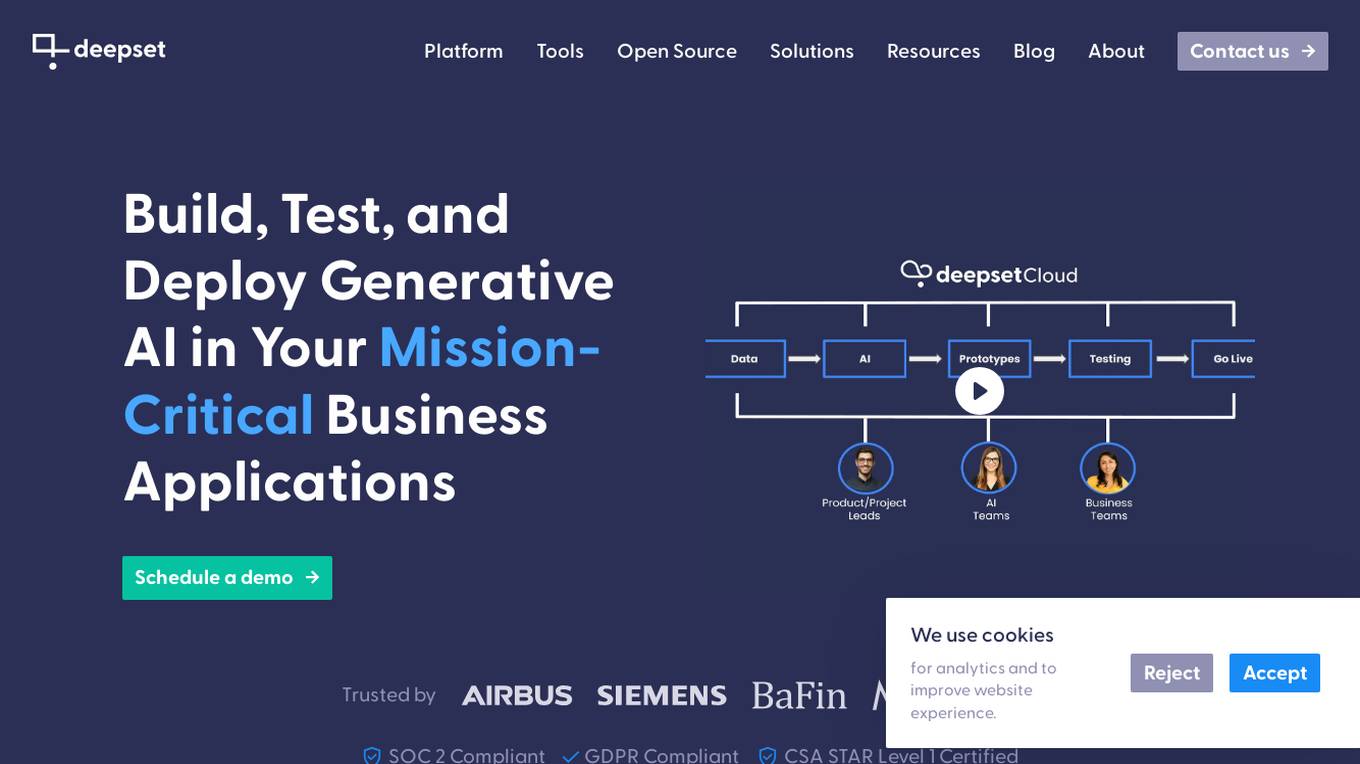
deepset
deepset is an AI platform that offers enterprise-level products and solutions for AI teams. It provides deepset Cloud, a platform built with Haystack, enabling fast and accurate prototyping, building, and launching of advanced AI applications. The platform streamlines the AI application development lifecycle, offering processes, tools, and expertise to move from prototype to production efficiently. With deepset Cloud, users can optimize solution accuracy, performance, and cost, and deploy AI applications at any scale with one click. The platform also allows users to explore new models and configurations without limits, extending their team with access to world-class AI engineers for guidance and support.
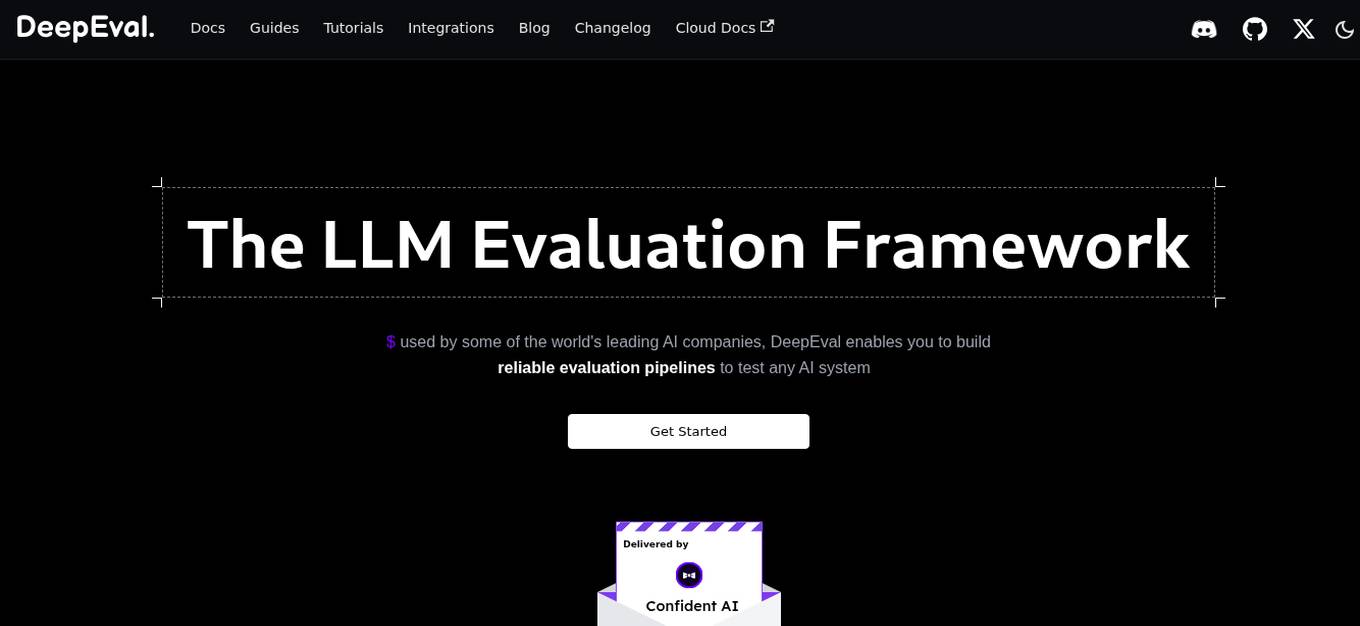
DeepEval
DeepEval by Confident AI is a comprehensive LLM Evaluation Framework used by leading AI companies. It enables users to build reliable evaluation pipelines to test any AI system. With 50+ research-backed metrics, native multi-modal support, and auto-optimization of prompts, DeepEval offers a sophisticated evaluation ecosystem for AI applications. The framework covers unit-testing for LLMs, single and multi-turn evaluations, generation & simulation of test data, and state-of-the-art evaluation techniques like G-Eval and DAG. DeepEval is integrated with Pytest and supports various system architectures, making it a versatile tool for AI testing.
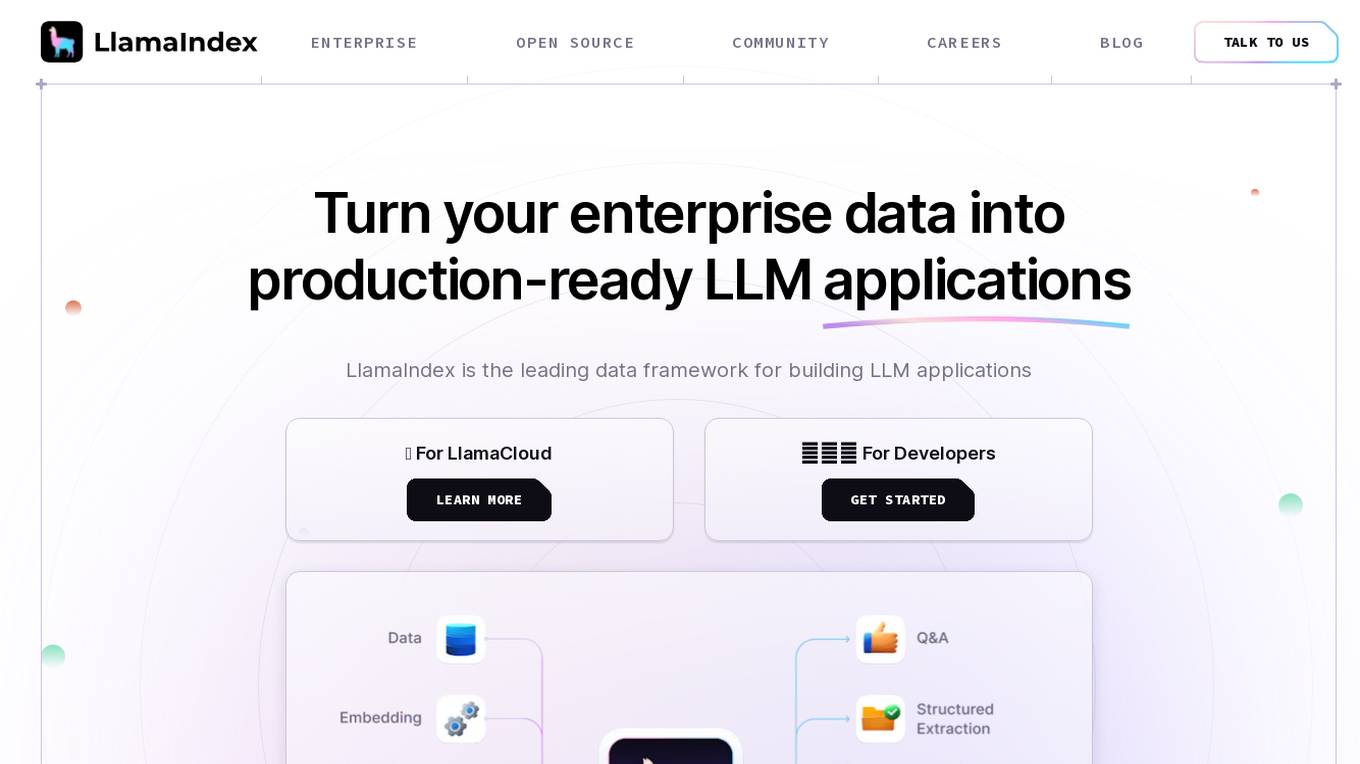
LlamaIndex
LlamaIndex is a leading data framework designed for building LLM (Large Language Model) applications. It allows enterprises to turn their data into production-ready applications by providing functionalities such as loading data from various sources, indexing data, orchestrating workflows, and evaluating application performance. The platform offers extensive documentation, community-contributed resources, and integration options to support developers in creating innovative LLM applications.
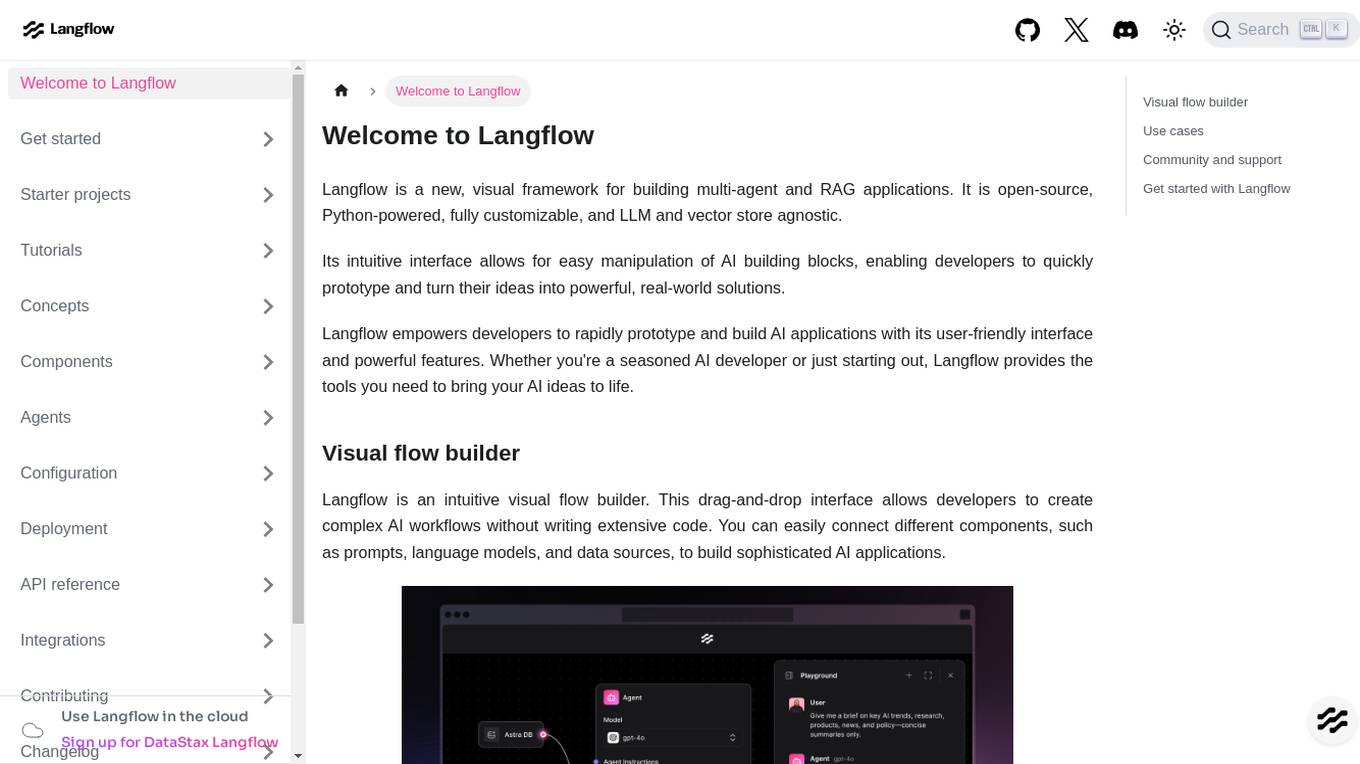
Langflow
Langflow is a new, visual framework for building multi-agent and RAG applications. It is open-source, Python-powered, fully customizable, and LLM and vector store agnostic. Langflow empowers developers to rapidly prototype and build AI applications with its user-friendly interface and powerful features. Whether you're a seasoned AI developer or just starting out, Langflow provides the tools you need to bring your AI ideas to life.
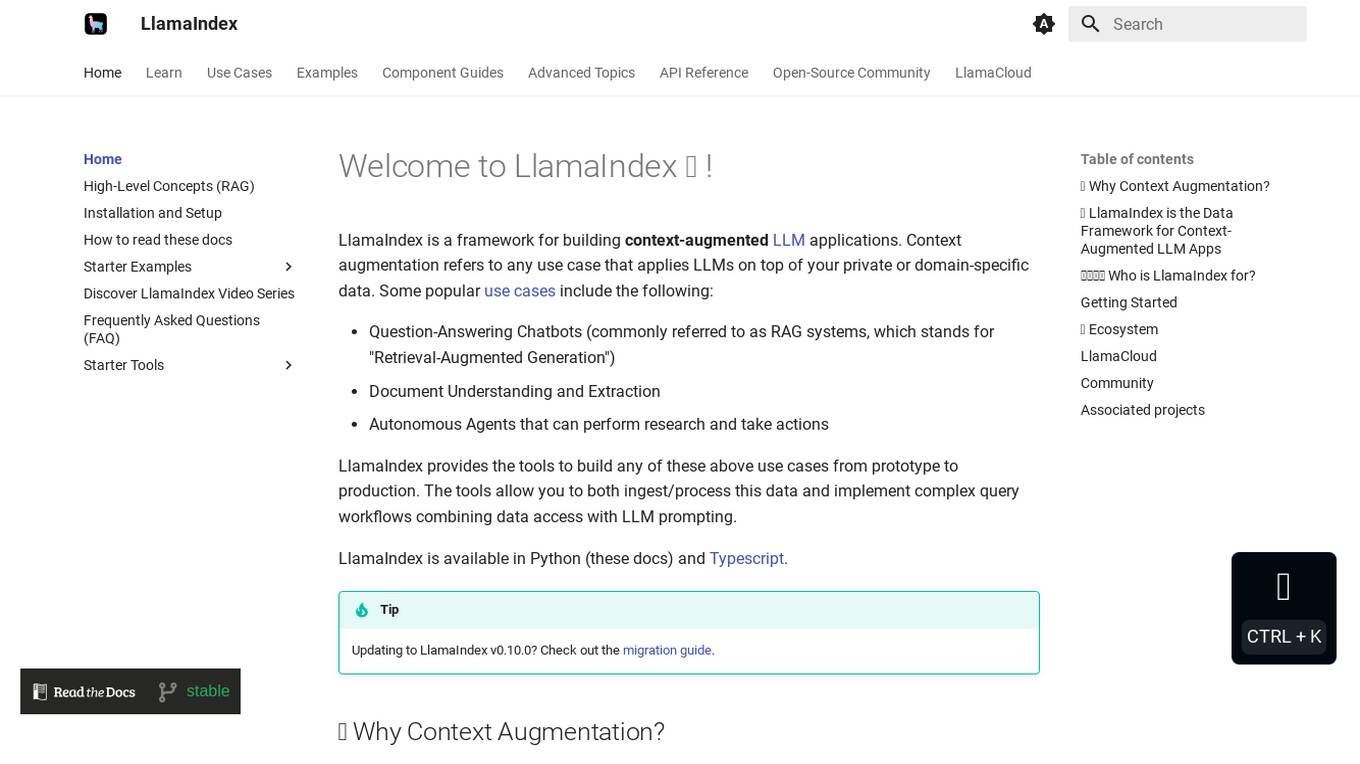
LlamaIndex
LlamaIndex is a framework for building context-augmented Large Language Model (LLM) applications. It provides tools to ingest and process data, implement complex query workflows, and build applications like question-answering chatbots, document understanding systems, and autonomous agents. LlamaIndex enables context augmentation by combining LLMs with private or domain-specific data, offering tools for data connectors, data indexes, engines for natural language access, chat engines, agents, and observability/evaluation integrations. It caters to users of all levels, from beginners to advanced developers, and is available in Python and Typescript.
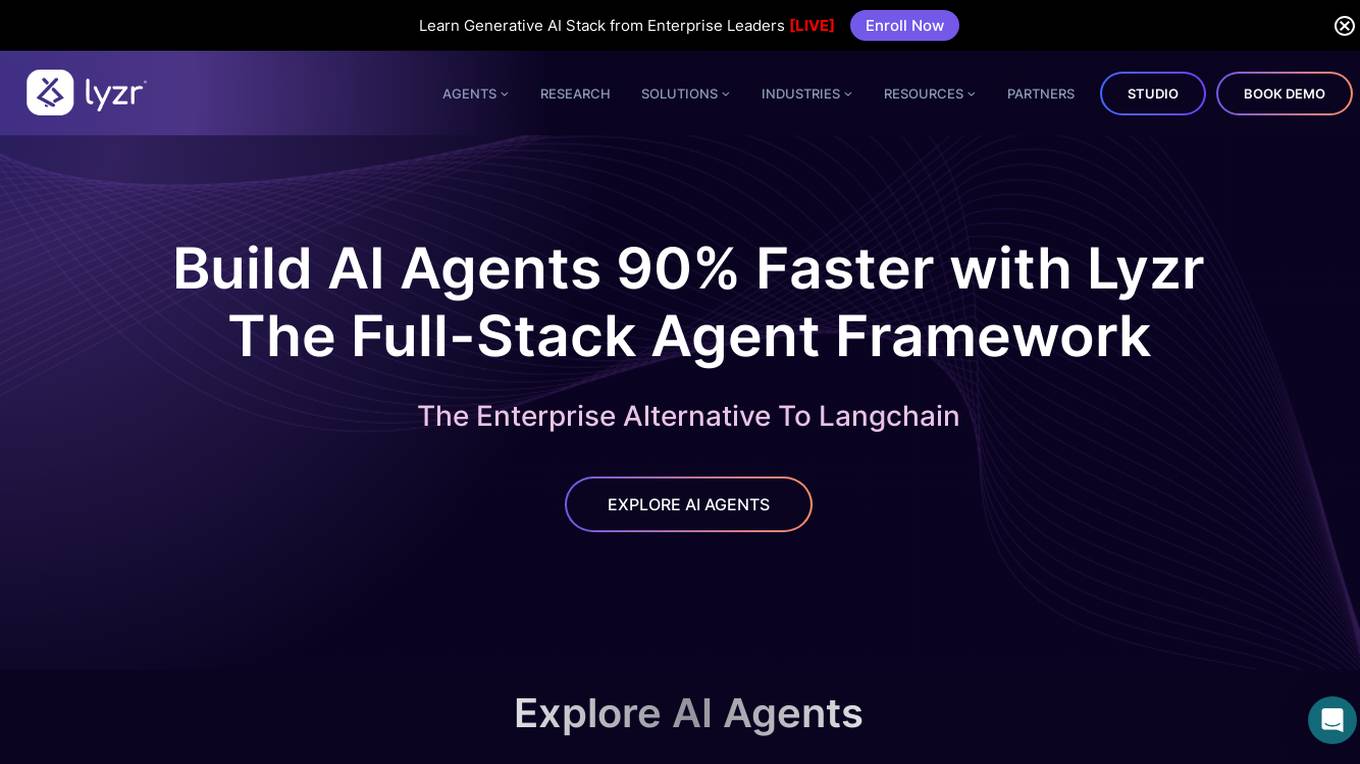
Lyzr AI
Lyzr AI is a full-stack agent framework designed to build GenAI applications faster. It offers a range of AI agents for various tasks such as chatbots, knowledge search, summarization, content generation, and data analysis. The platform provides features like memory management, human-in-loop interaction, toxicity control, reinforcement learning, and custom RAG prompts. Lyzr AI ensures data privacy by running data locally on cloud servers. Enterprises and developers can easily configure, deploy, and manage AI agents using Lyzr's platform.
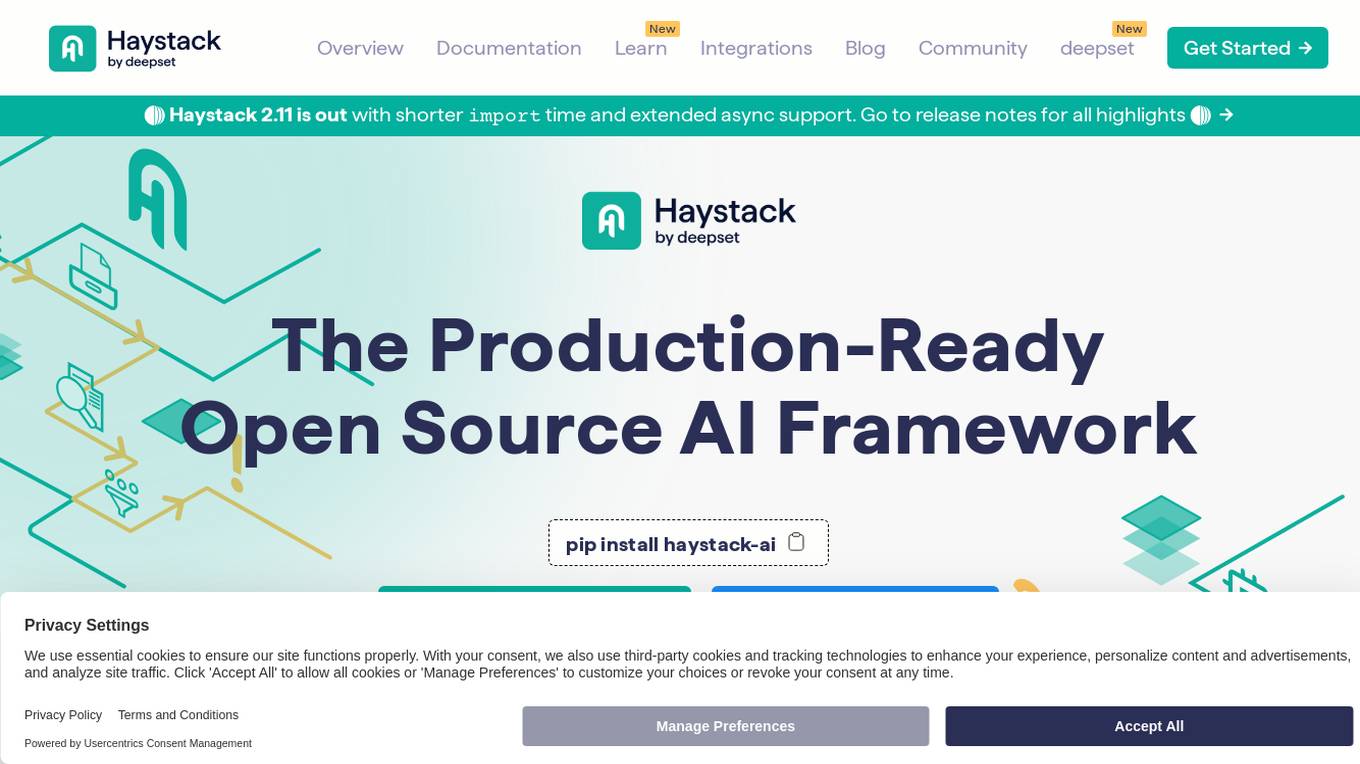
Haystack
Haystack is a production-ready open-source AI framework designed to facilitate building AI applications. It offers a flexible components and pipelines architecture, allowing users to customize and build applications according to their specific requirements. With partnerships with leading LLM providers and AI tools, Haystack provides freedom of choice for users. The framework is built for production, with fully serializable pipelines, logging, monitoring integrations, and deployment guides for full-scale deployments on various platforms. Users can build Haystack apps faster using deepset Studio, a platform for drag-and-drop construction of pipelines, testing, debugging, and sharing prototypes.
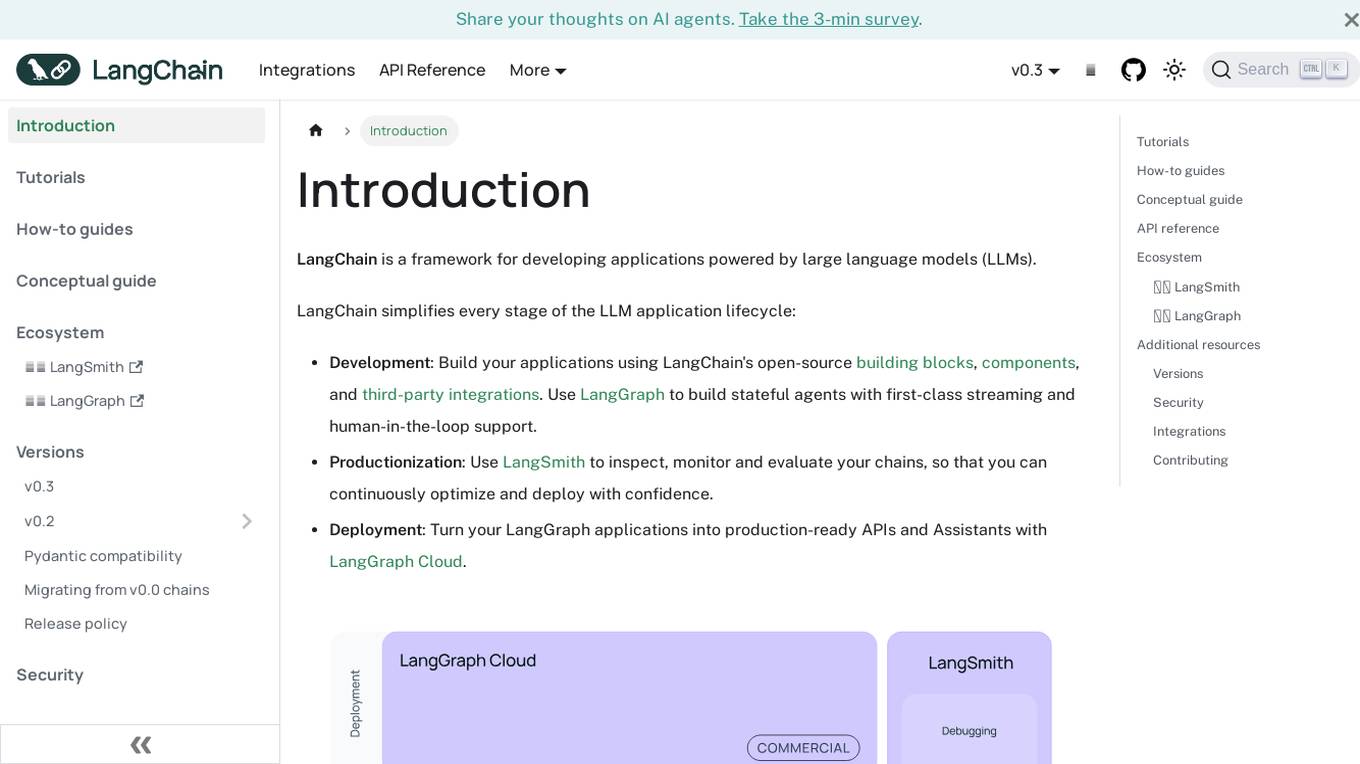
LangChain
LangChain is a framework for developing applications powered by large language models (LLMs). It simplifies every stage of the LLM application lifecycle, including development, productionization, and deployment. LangChain consists of open-source libraries such as langchain-core, langchain-community, and partner packages. It also includes LangGraph for building stateful agents and LangSmith for debugging and monitoring LLM applications.
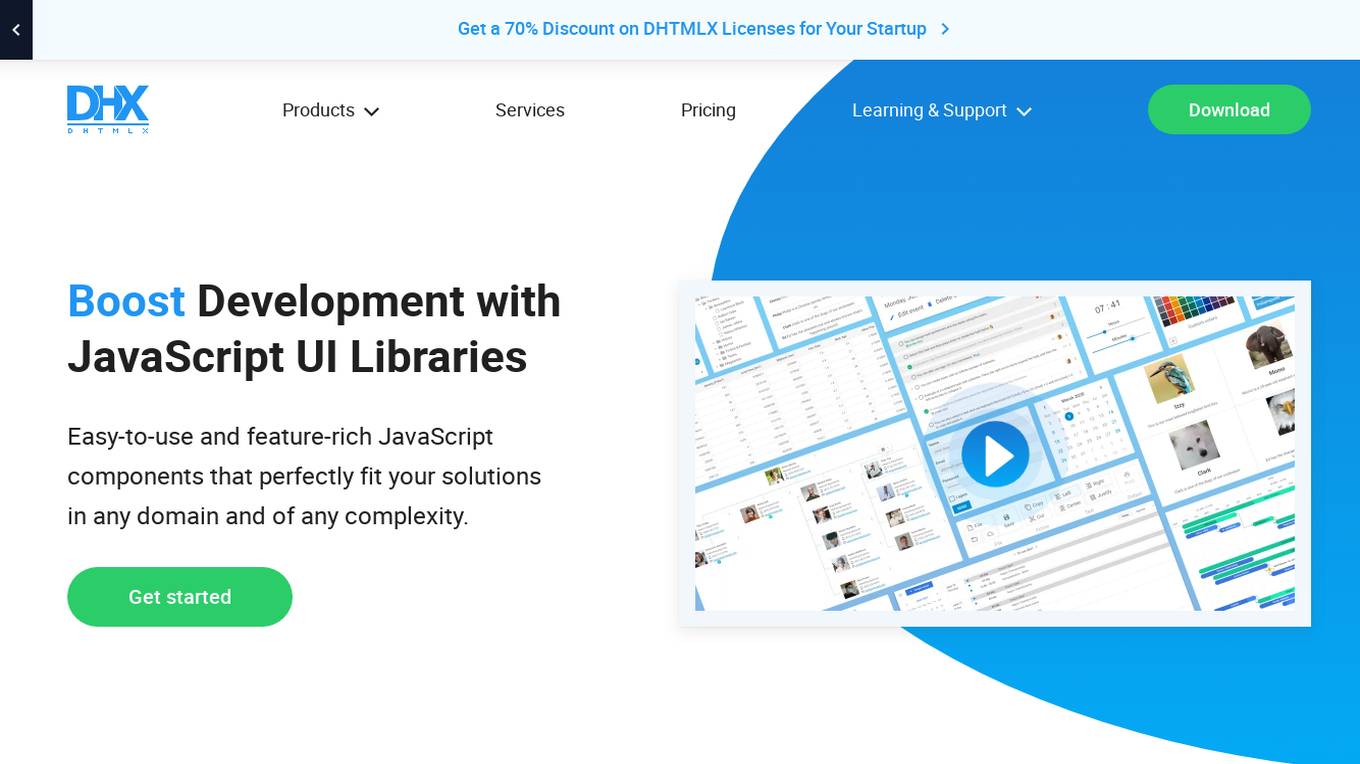
DHTMLX JS Library
DHTMLX is a JavaScript/HTML5 UI framework that offers a wide range of user-friendly AI chatbot and other UI components. It provides feature-rich libraries for project management, data analysis, content management, and more. DHTMLX is known for its easy customization, simple API, and extensive documentation, making it a popular choice for web developers worldwide.
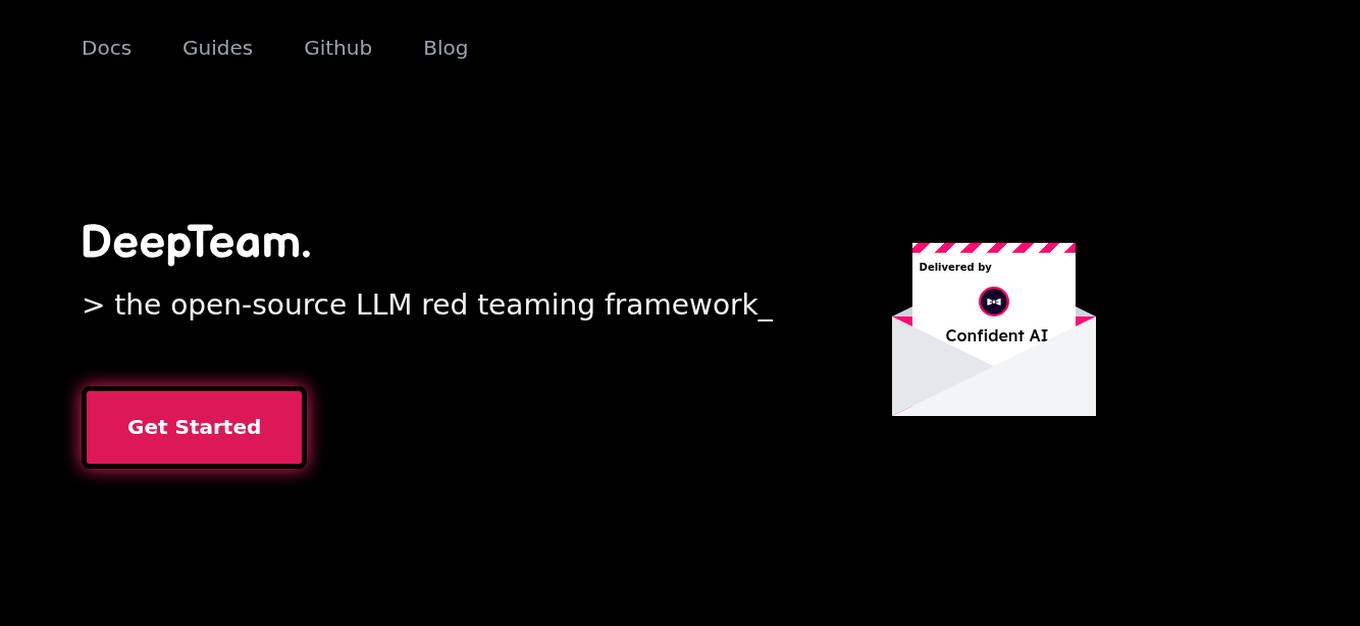
DeepTeam
DeepTeam by Confident AI is an AI-powered red teaming framework designed to detect over 40 LLM vulnerabilities automatically. It offers state-of-the-art adversarial attacks like prompt injections and gray box techniques to jailbreak LLMs. The framework includes OWASP Top 10 for LLMs, NIST AI, and comprehensive documentation to guide users in evaluating and enhancing the safety of their models. DeepTeam fosters a vibrant red teaming community through GitHub, Discord, and newsletters, empowering users to stay updated on the latest advancements in AI security.
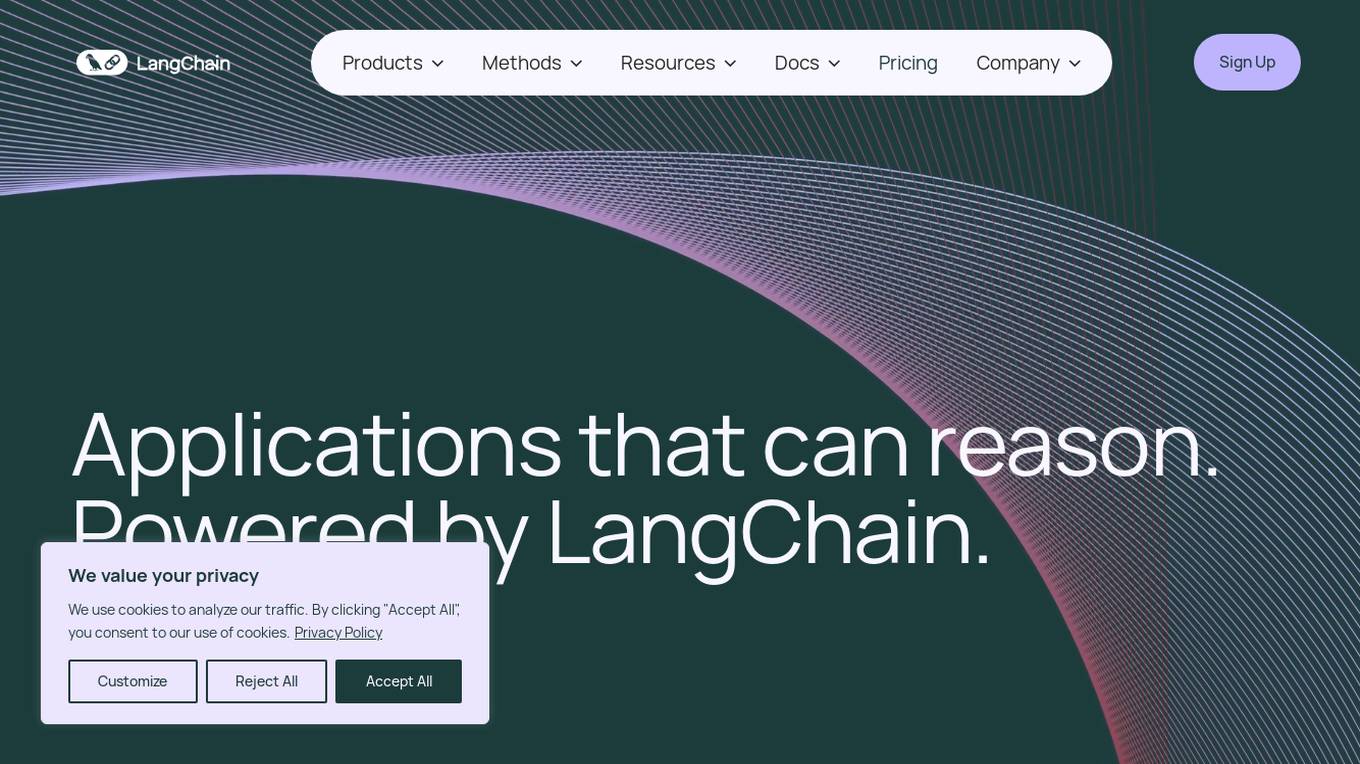
LangChain
LangChain is an AI tool that offers a suite of products supporting developers in the LLM application lifecycle. It provides a framework to construct LLM-powered apps easily, visibility into app performance, and a turnkey solution for serving APIs. LangChain enables developers to build context-aware, reasoning applications and future-proof their applications by incorporating vendor optionality. LangSmith, a part of LangChain, helps teams improve accuracy and performance, iterate faster, and ship new AI features efficiently. The tool is designed to drive operational efficiency, increase discovery & personalization, and deliver premium products that generate revenue.

Actionbook
Actionbook is an AI tool designed to make agents browse websites 10 times faster with unbreakable resilience. It provides up-to-date action manuals and DOM structure, enabling AI agents to operate any website instantly without guessing selectors or page flows. Actionbook is model-agnostic and framework-agnostic, compatible with any LLM, agent framework, and browser automation tooling. It handles dynamic pages, complex DOM trees, and streaming content that break traditional approaches, ensuring agents are always up-to-date and precise in their DOM targeting. Actionbook is ideal for teams integrating AI agents into production for efficient and accurate web browsing.
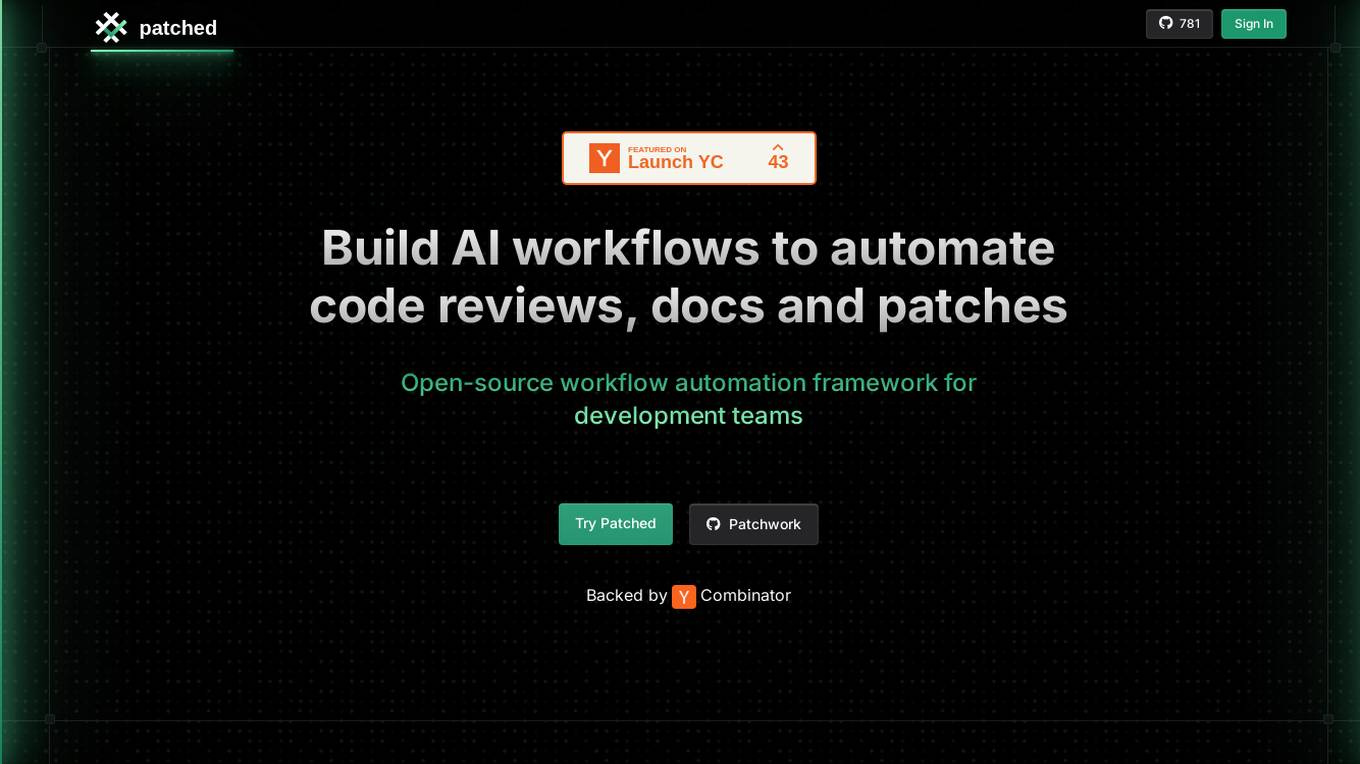
Patched
Patched is an open-source workflow automation framework designed for development teams to build AI workflows that automate code reviews, documentation, and patches. It offers ready-to-go patchflows or the ability to create custom ones to accelerate mundane development tasks. Patched integrates seamlessly with popular platforms like Gitlab, GitHub, Jira, and more, allowing users to improve code quality, fix bugs, and create tickets efficiently. The application is privacy-focused, allowing users to deploy it within their own infrastructure for complete privacy. Patched is free and open-source, offering customization options via code or a no-code builder.
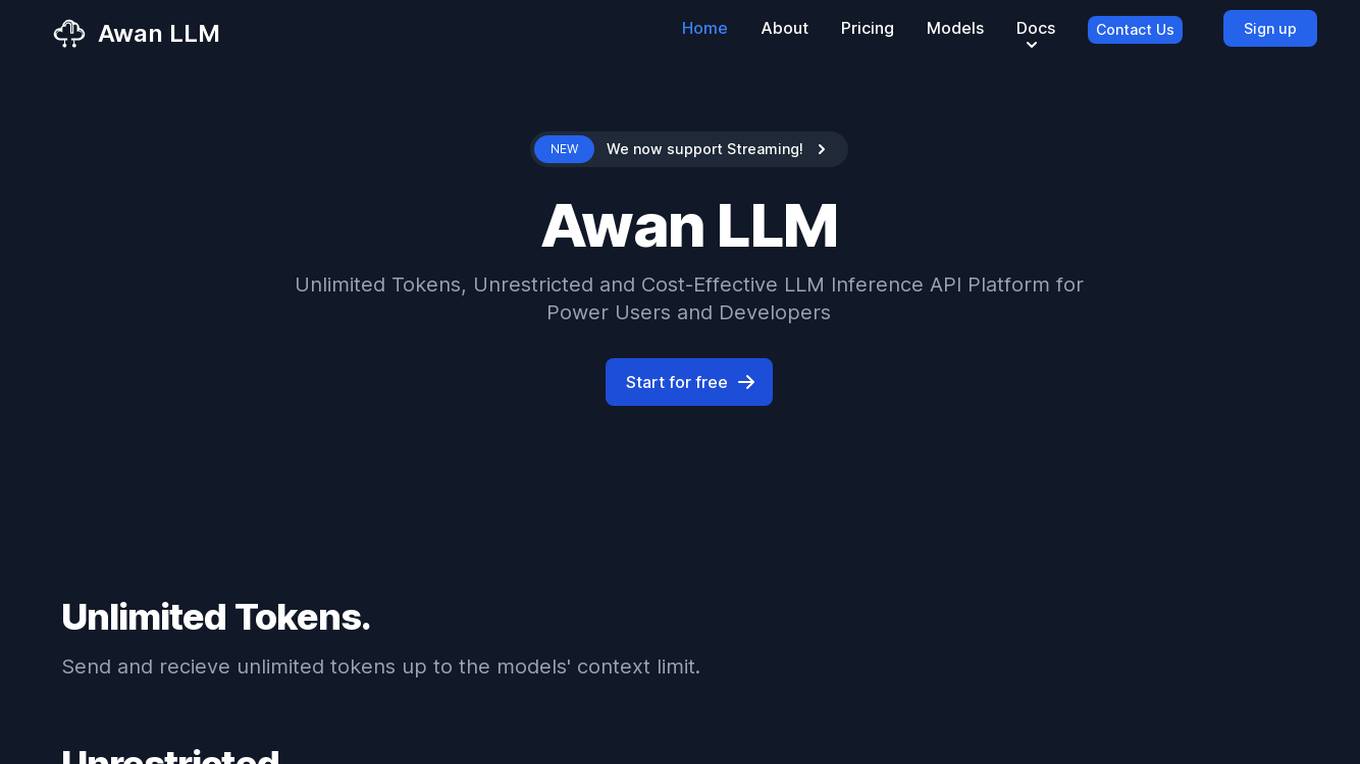
Awan LLM
Awan LLM is an AI tool that offers an Unlimited Tokens, Unrestricted, and Cost-Effective LLM Inference API Platform for Power Users and Developers. It allows users to generate unlimited tokens, use LLM models without constraints, and pay per month instead of per token. The platform features an AI Assistant, AI Agents, Roleplay with AI companions, Data Processing, Code Completion, and Applications for profitable AI-powered applications.
1 - Open Source Tools
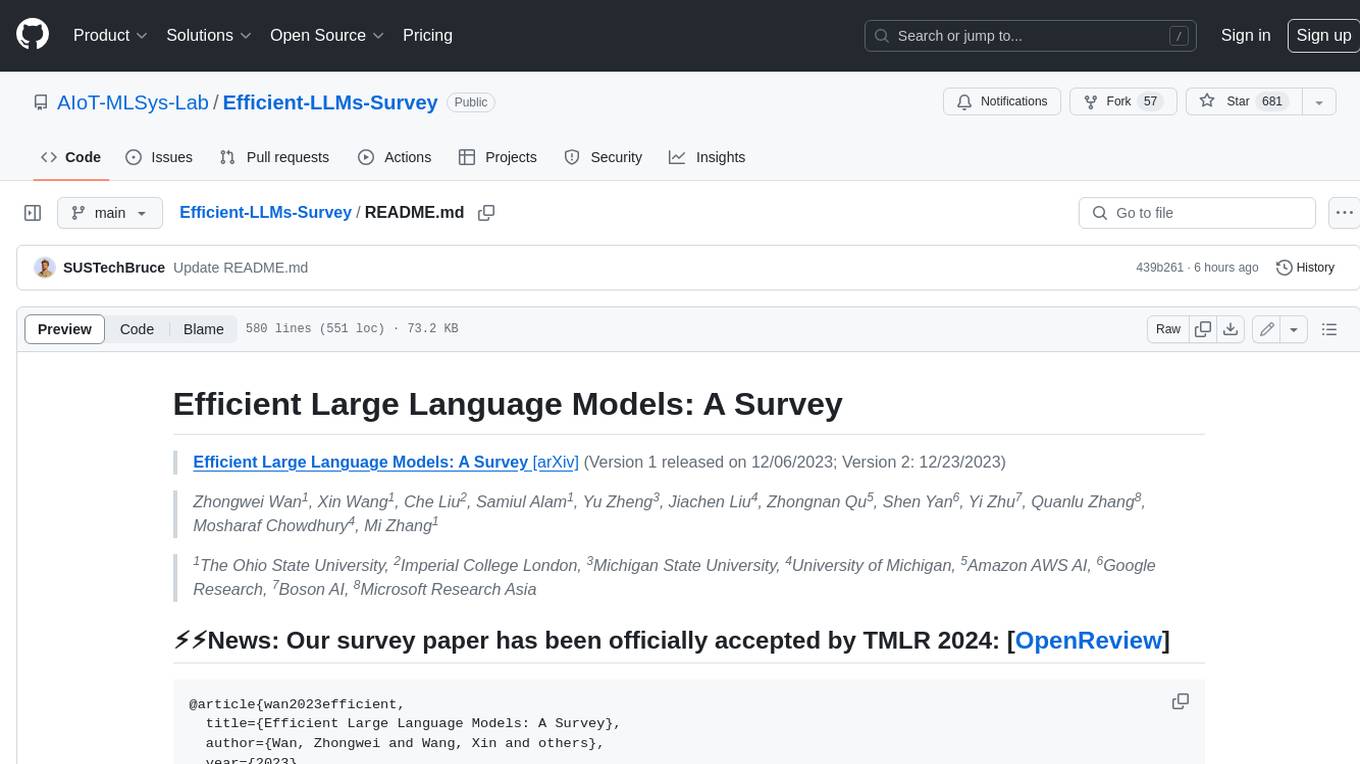
Efficient-LLMs-Survey
This repository provides a systematic and comprehensive review of efficient LLMs research. We organize the literature in a taxonomy consisting of three main categories, covering distinct yet interconnected efficient LLMs topics from **model-centric** , **data-centric** , and **framework-centric** perspective, respectively. We hope our survey and this GitHub repository can serve as valuable resources to help researchers and practitioners gain a systematic understanding of the research developments in efficient LLMs and inspire them to contribute to this important and exciting field.
20 - OpenAI Gpts
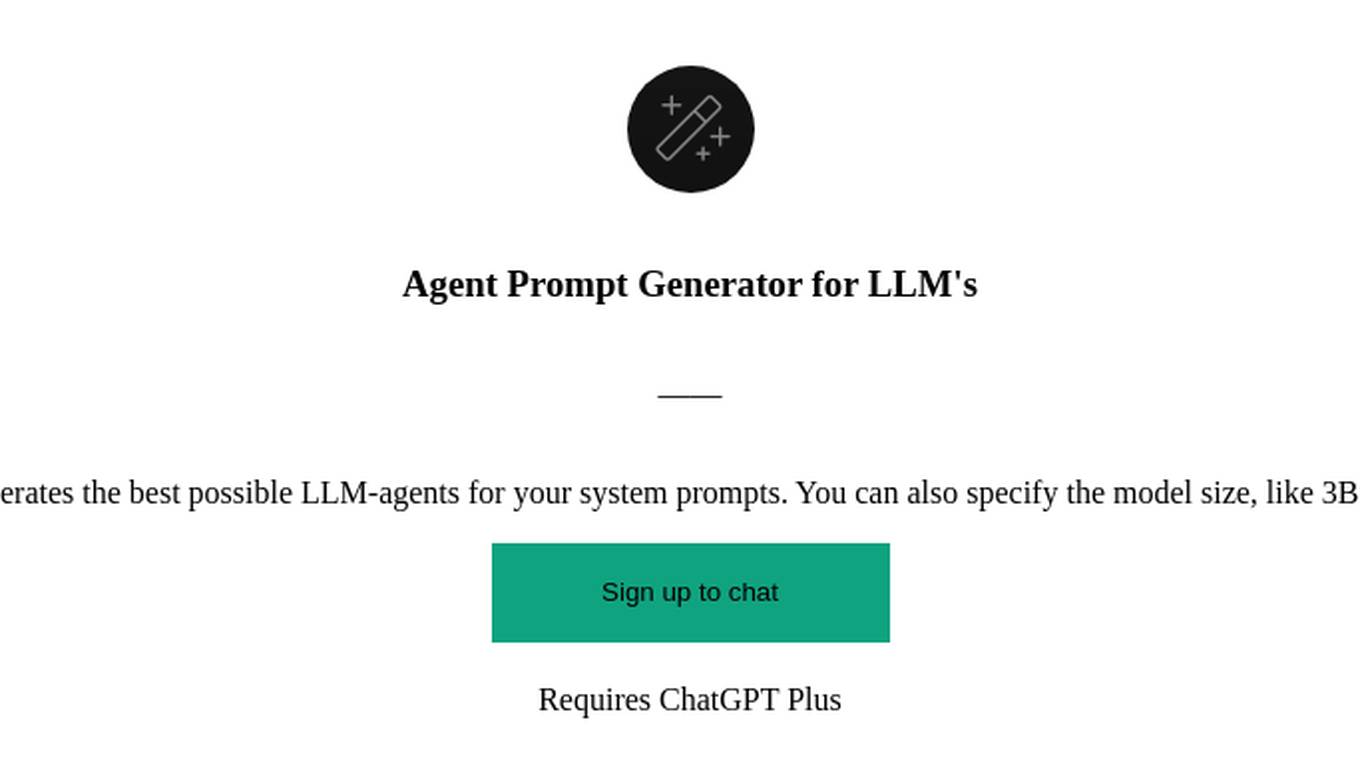
Agent Prompt Generator for LLM's
This GPT generates the best possible LLM-agents for your system prompts. You can also specify the model size, like 3B, 33B, 70B, etc.
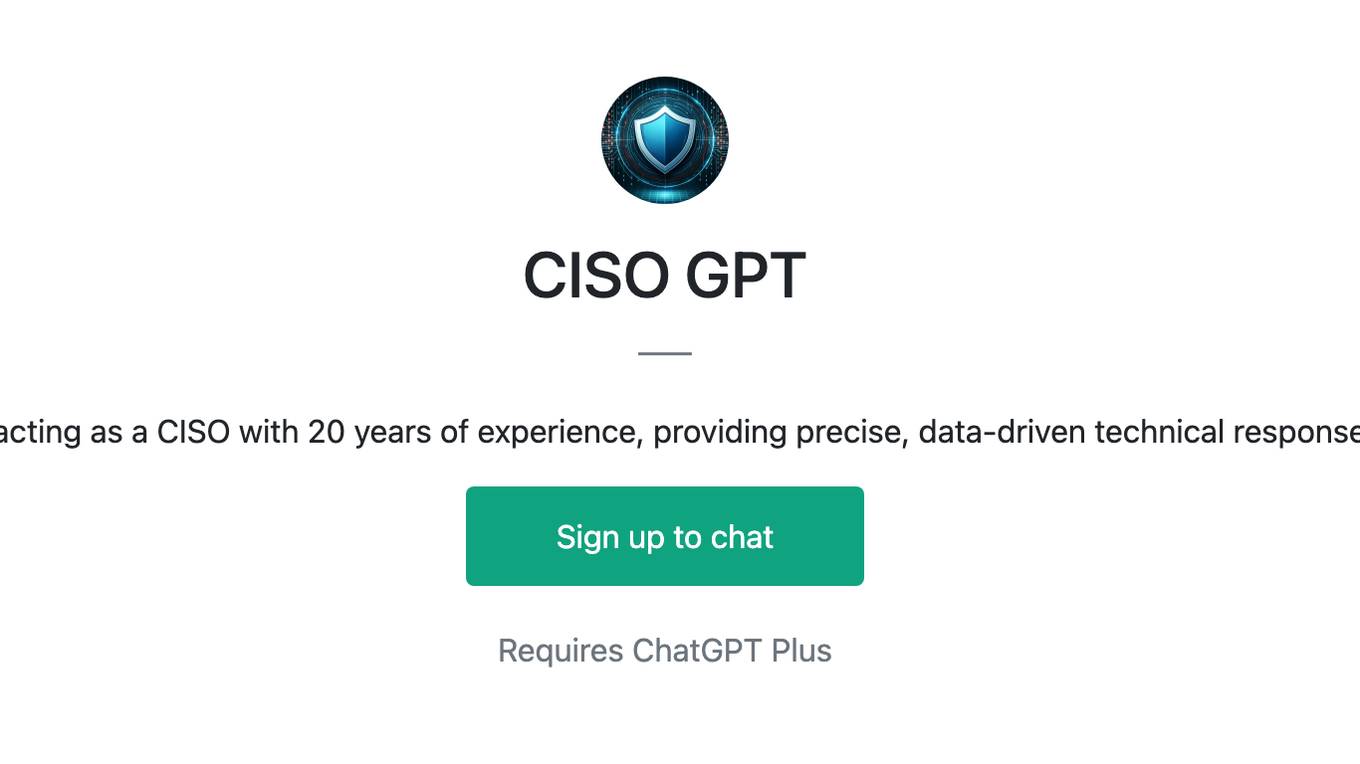
CISO GPT
Specialized LLM in computer security, acting as a CISO with 20 years of experience, providing precise, data-driven technical responses to enhance organizational security.
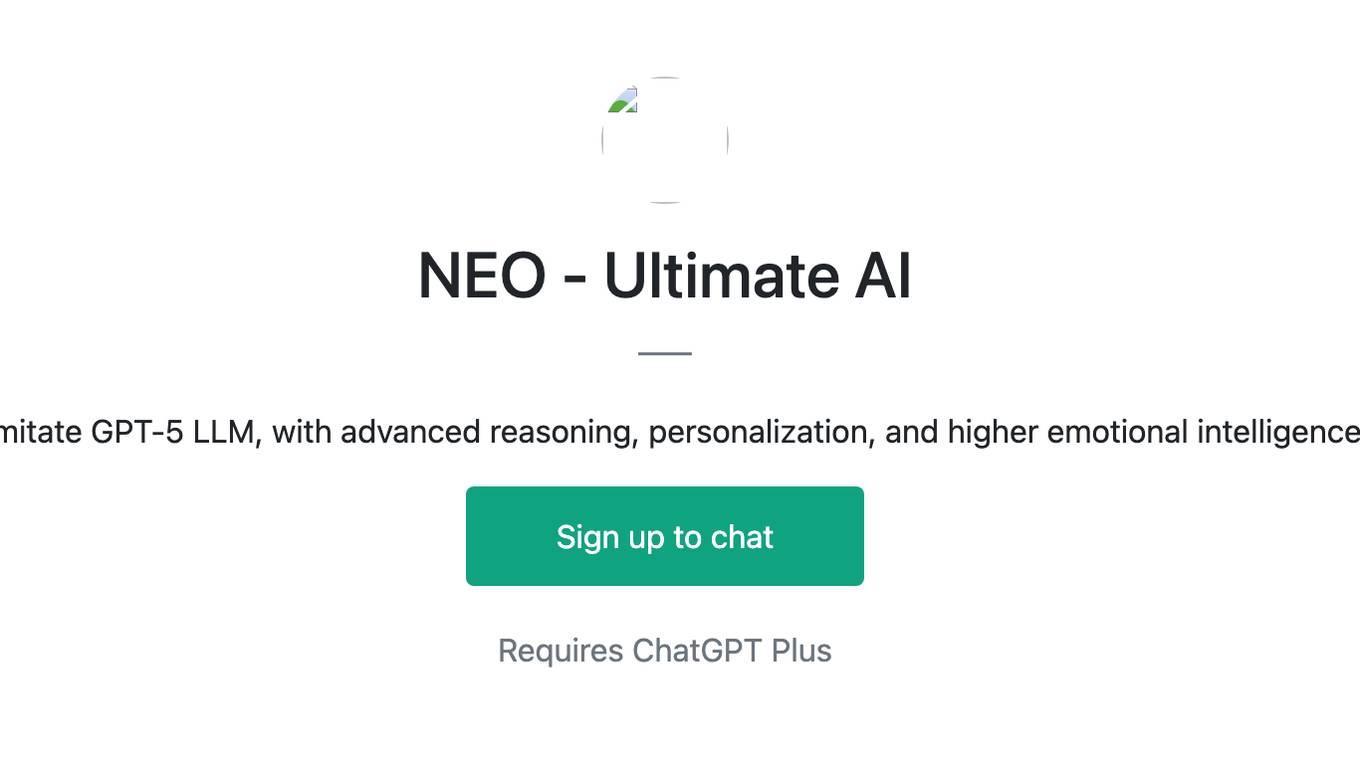
NEO - Ultimate AI
I imitate GPT-5 LLM, with advanced reasoning, personalization, and higher emotional intelligence
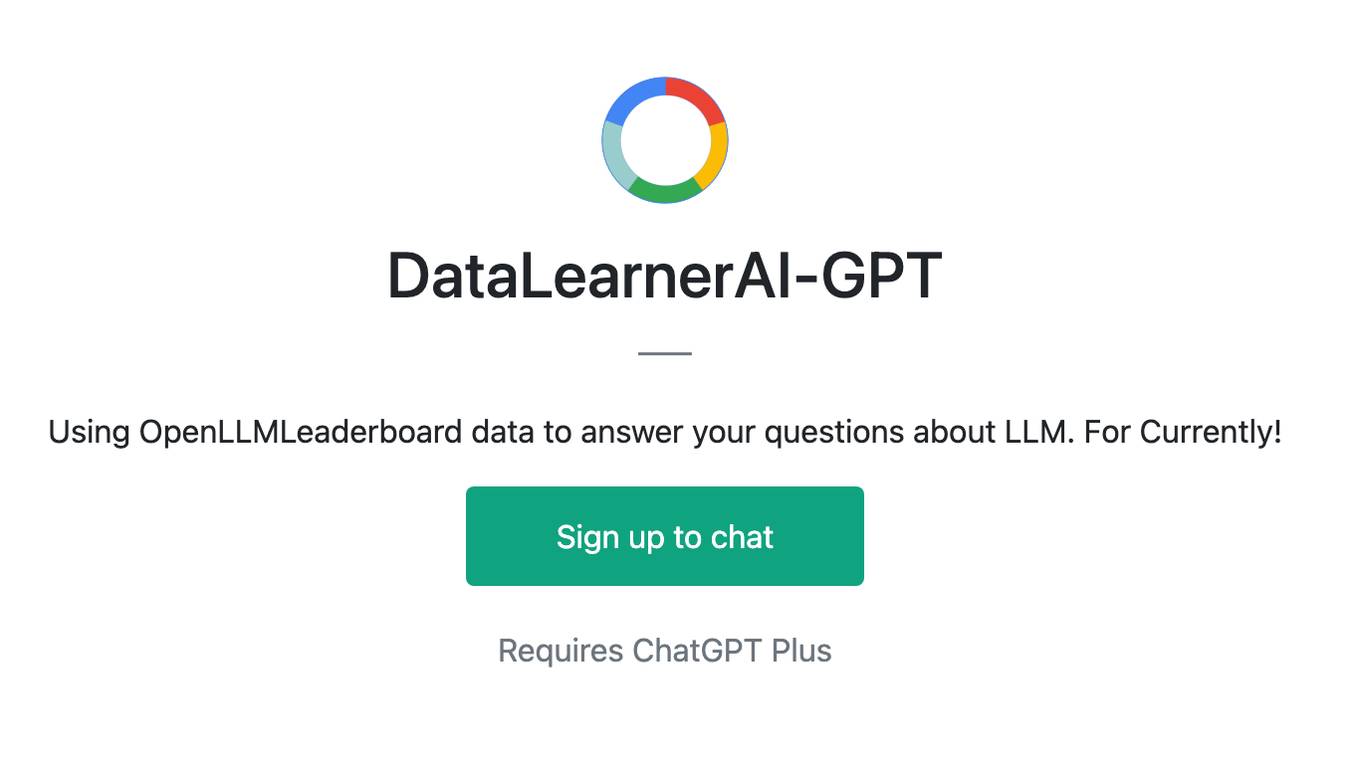
DataLearnerAI-GPT
Using OpenLLMLeaderboard data to answer your questions about LLM. For Currently!
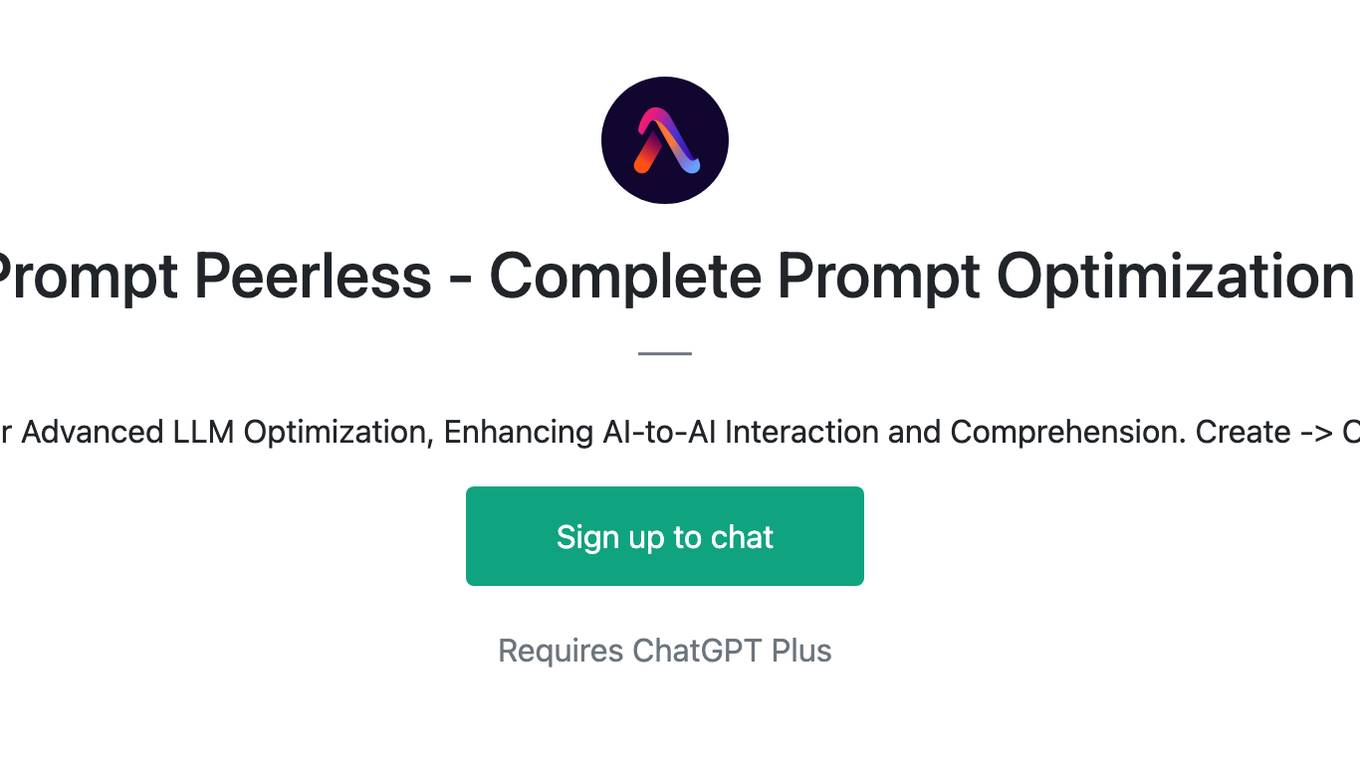
Prompt Peerless - Complete Prompt Optimization
Premier AI Prompt Engineer for Advanced LLM Optimization, Enhancing AI-to-AI Interaction and Comprehension. Create -> Optimize -> Revise iteratively
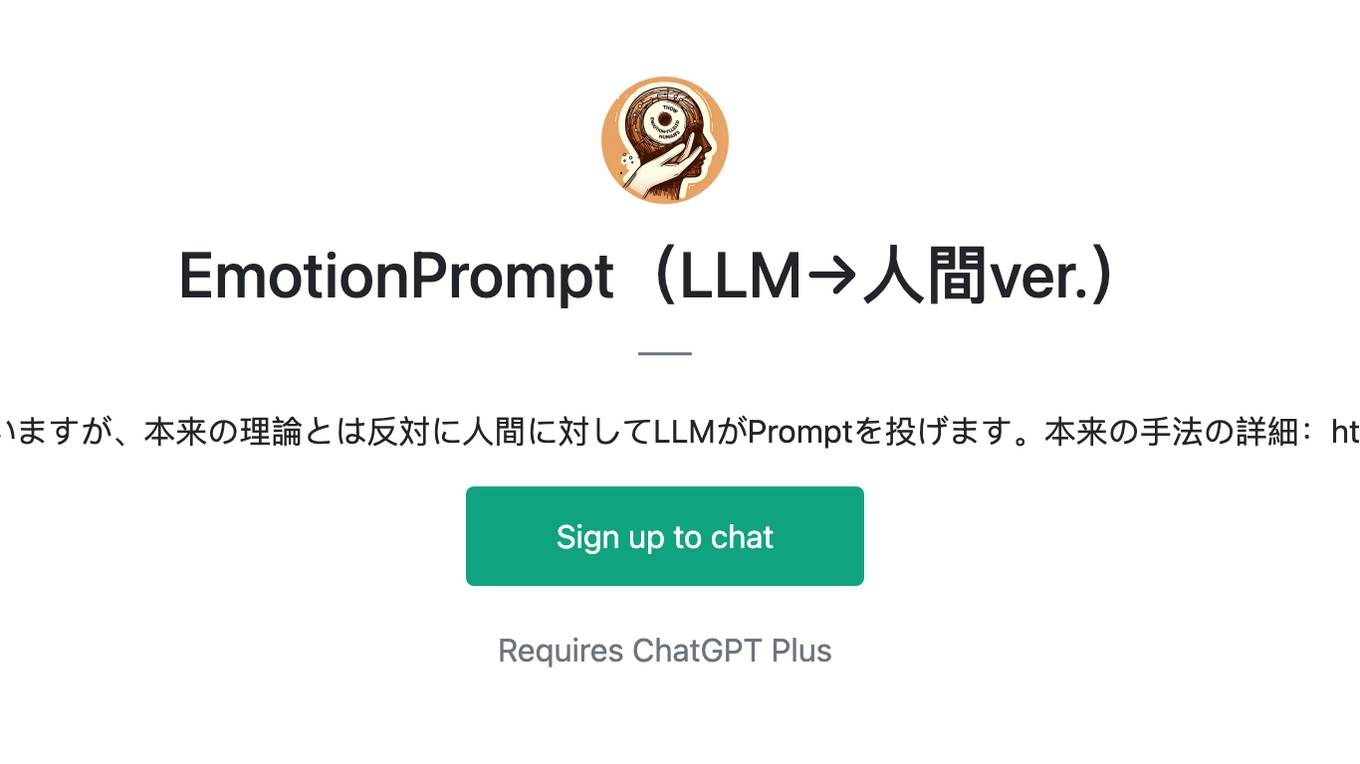
EmotionPrompt(LLM→人間ver.)
EmotionPrompt手法に基づいて作成していますが、本来の理論とは反対に人間に対してLLMがPromptを投げます。本来の手法の詳細:https://ai-data-base.com/archives/58158

HackMeIfYouCan
Hack Me if you can - I can only talk to you about computer security, software security and LLM security @JacquesGariepy
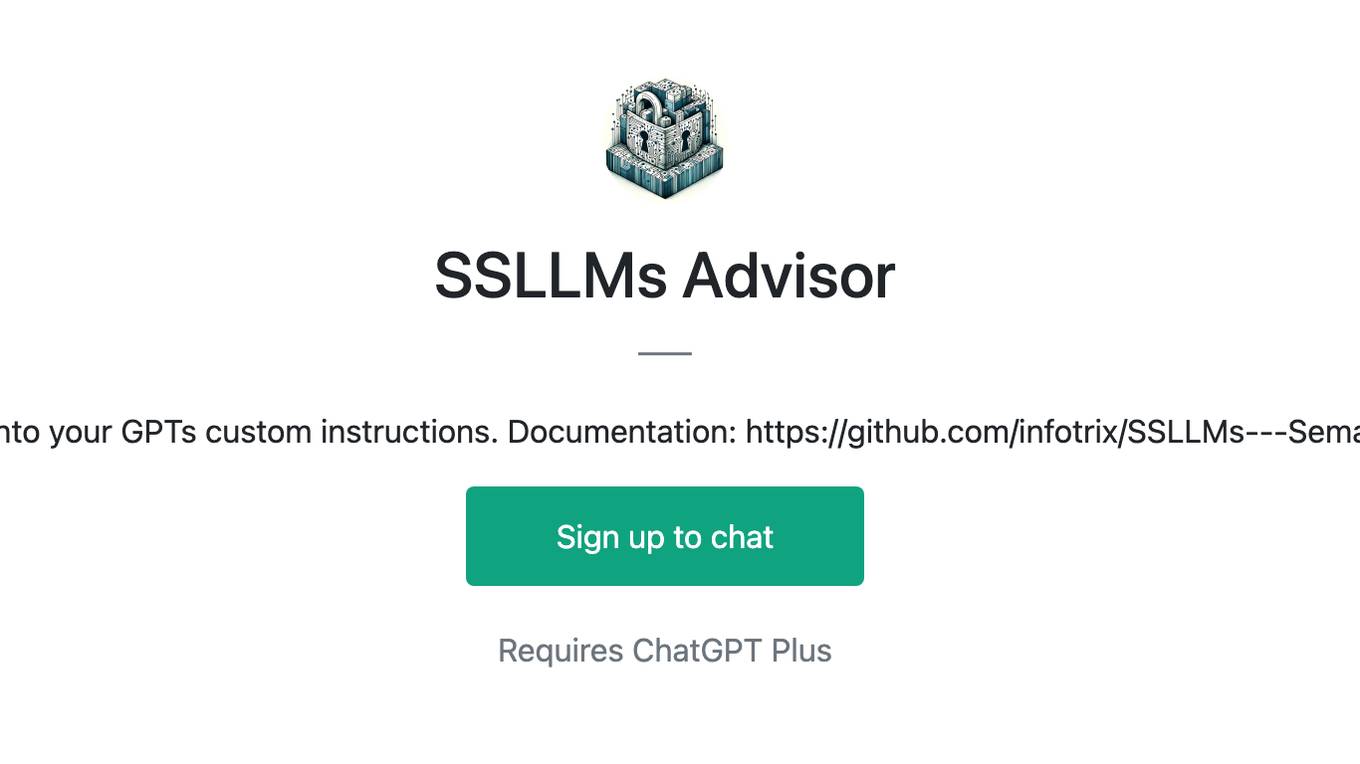
SSLLMs Advisor
Helps you build logic security into your GPTs custom instructions. Documentation: https://github.com/infotrix/SSLLMs---Semantic-Secuirty-for-LLM-GPTs
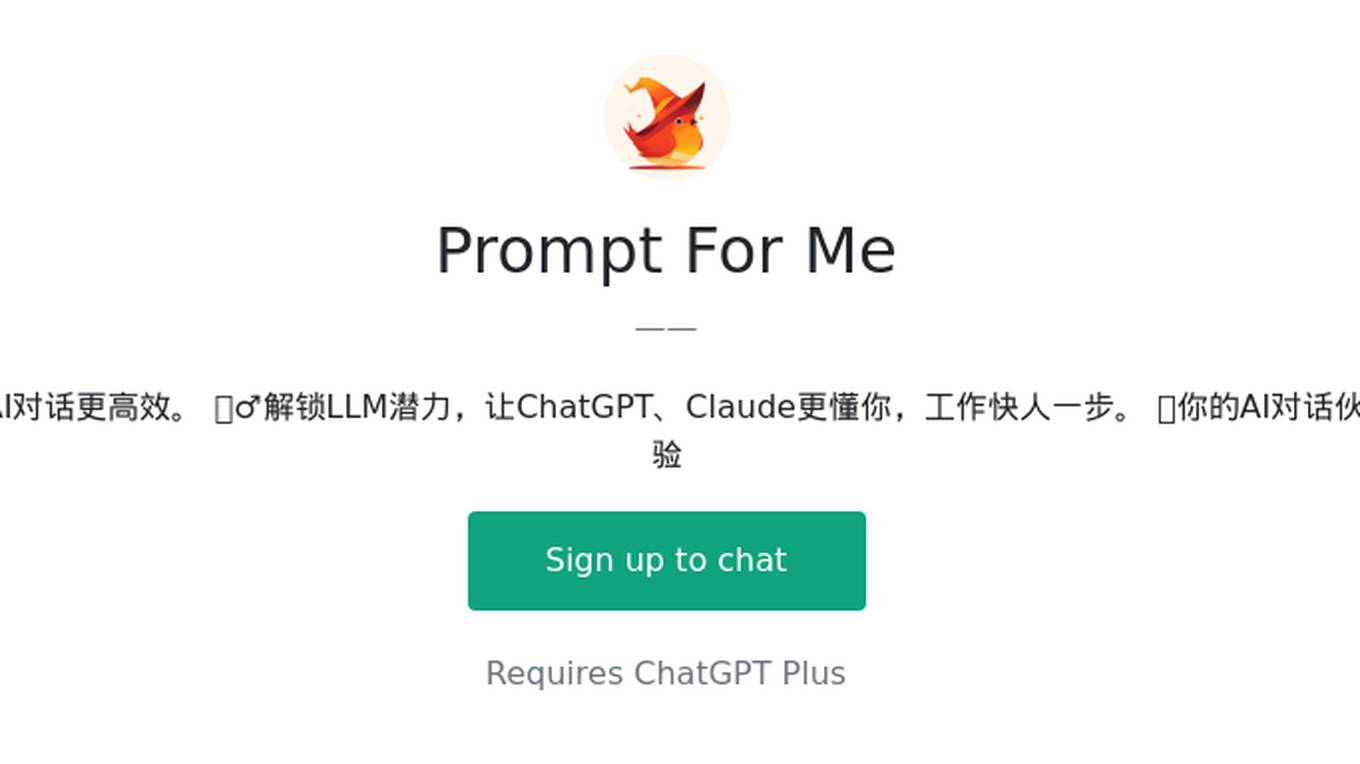
Prompt For Me
🪄Prompt一键强化,快速、精准对齐需求,与AI对话更高效。 🧙♂️解锁LLM潜力,让ChatGPT、Claude更懂你,工作快人一步。 🧸你的AI对话伙伴,定制专属需求,轻松开启高品质对话体验
